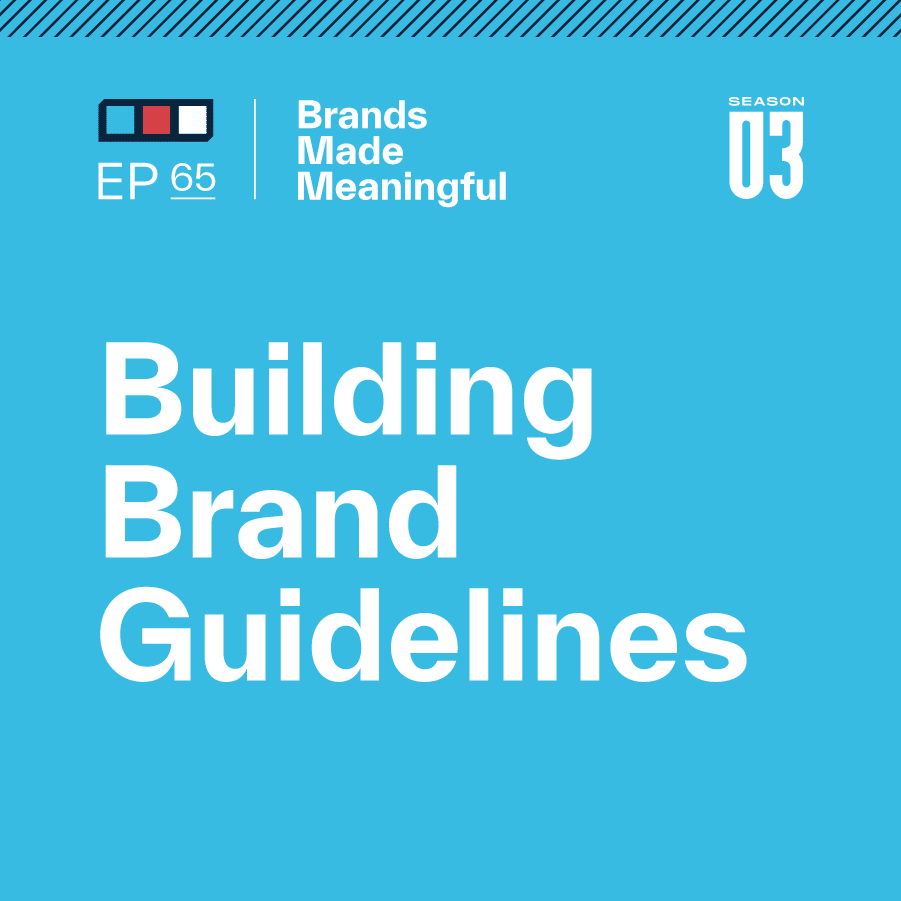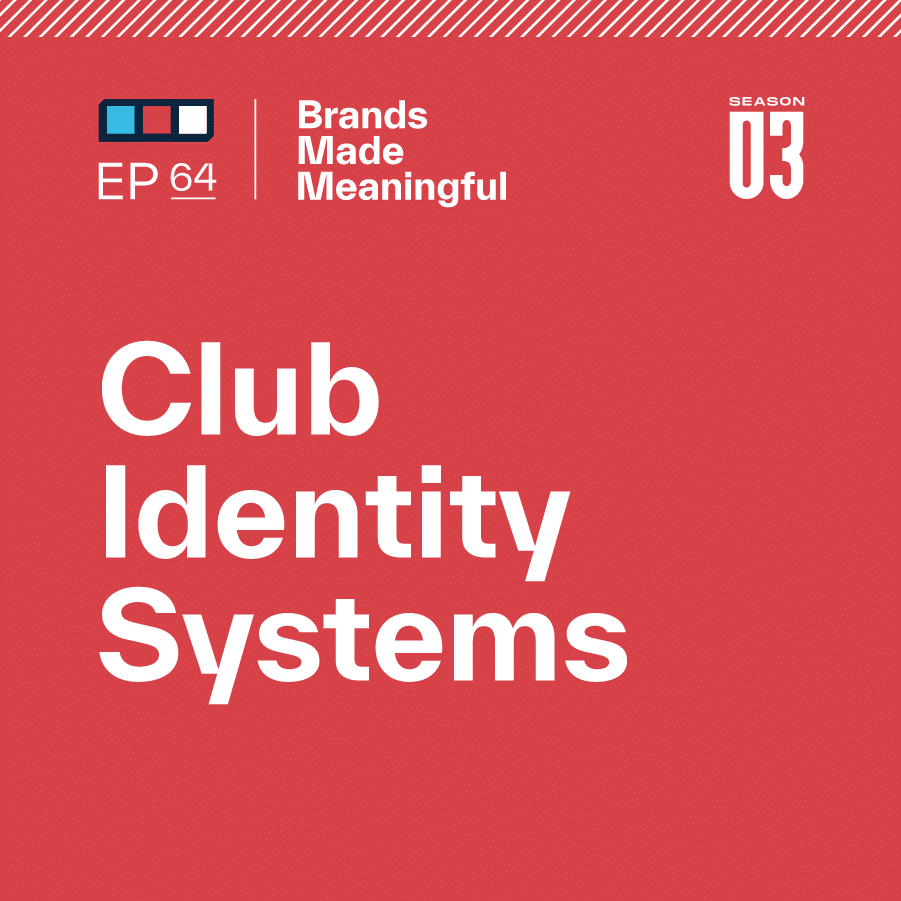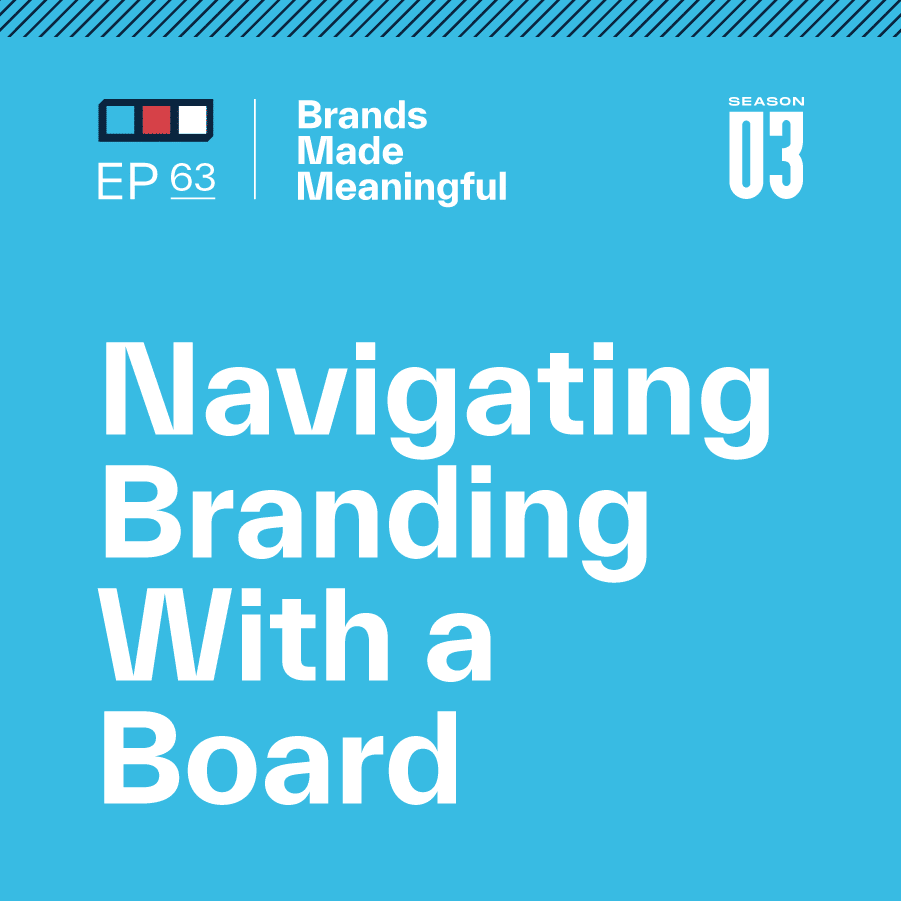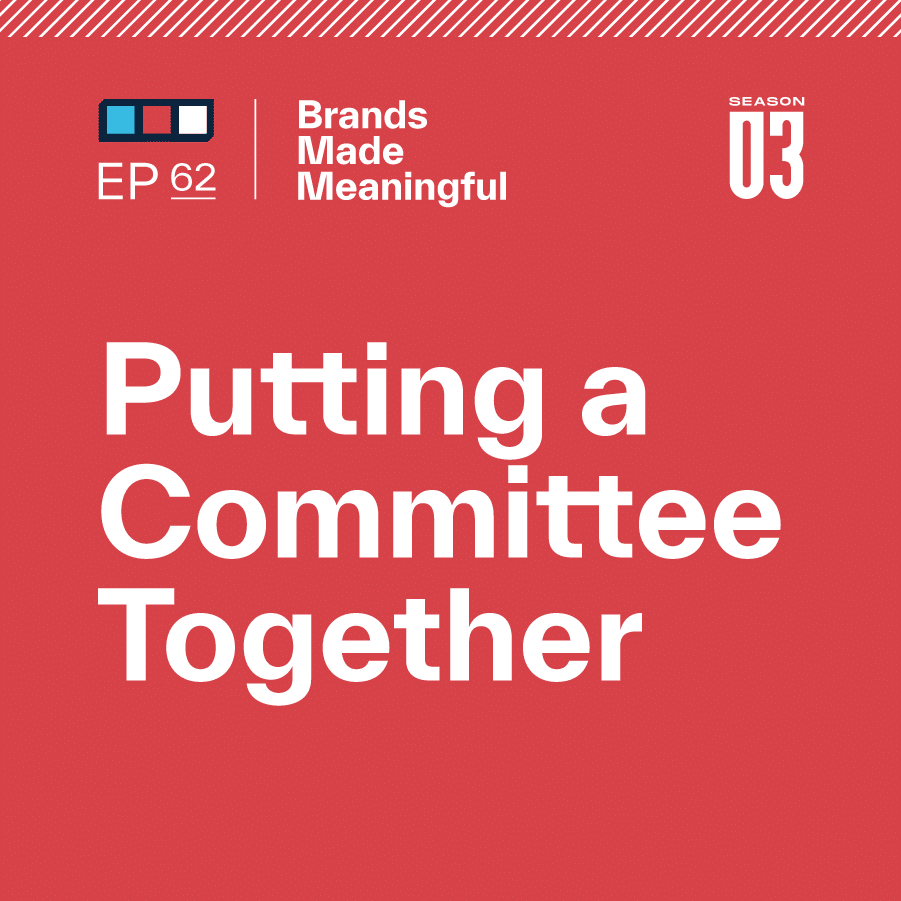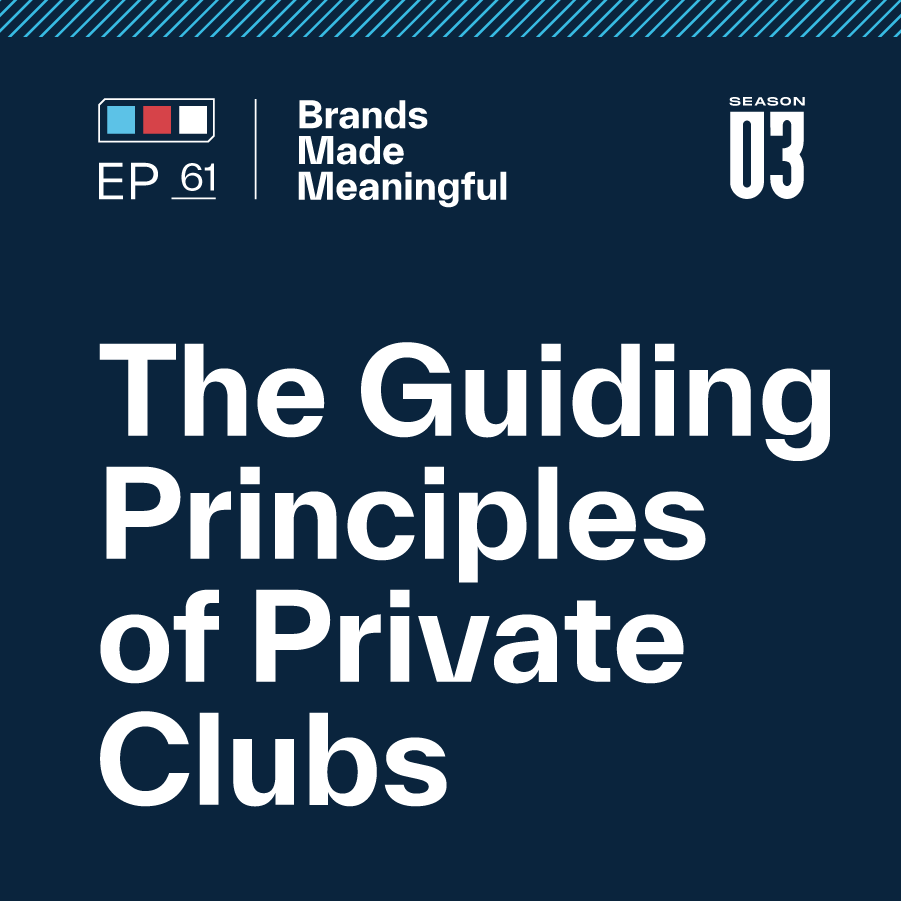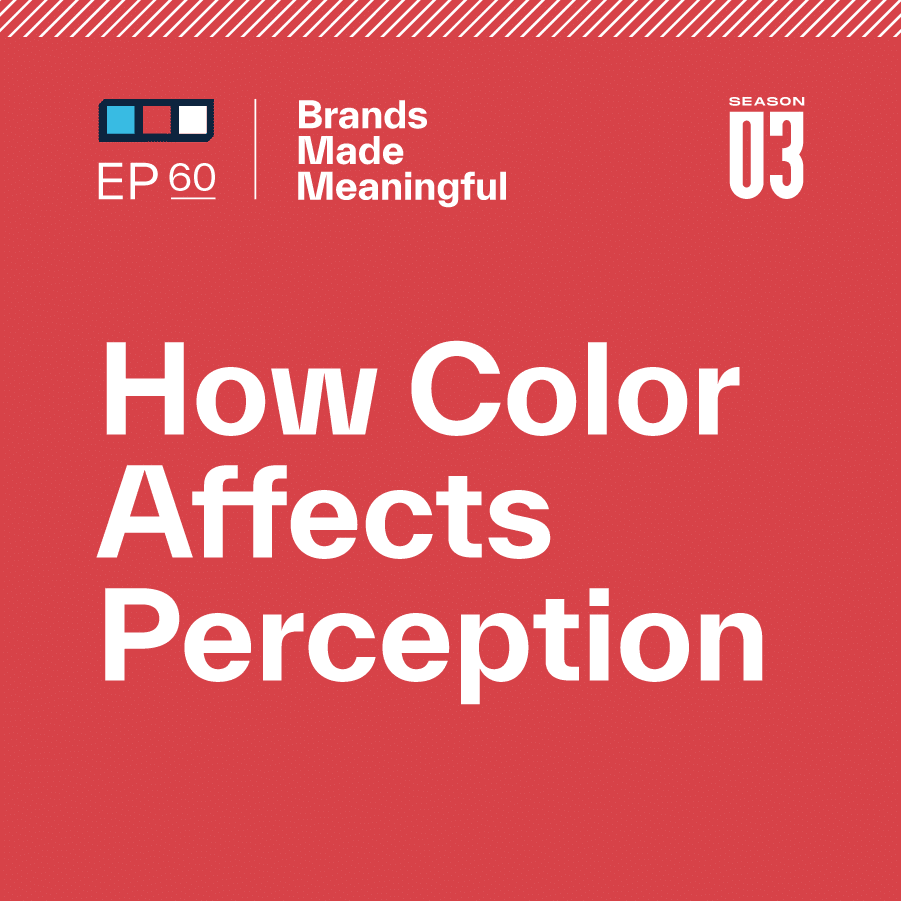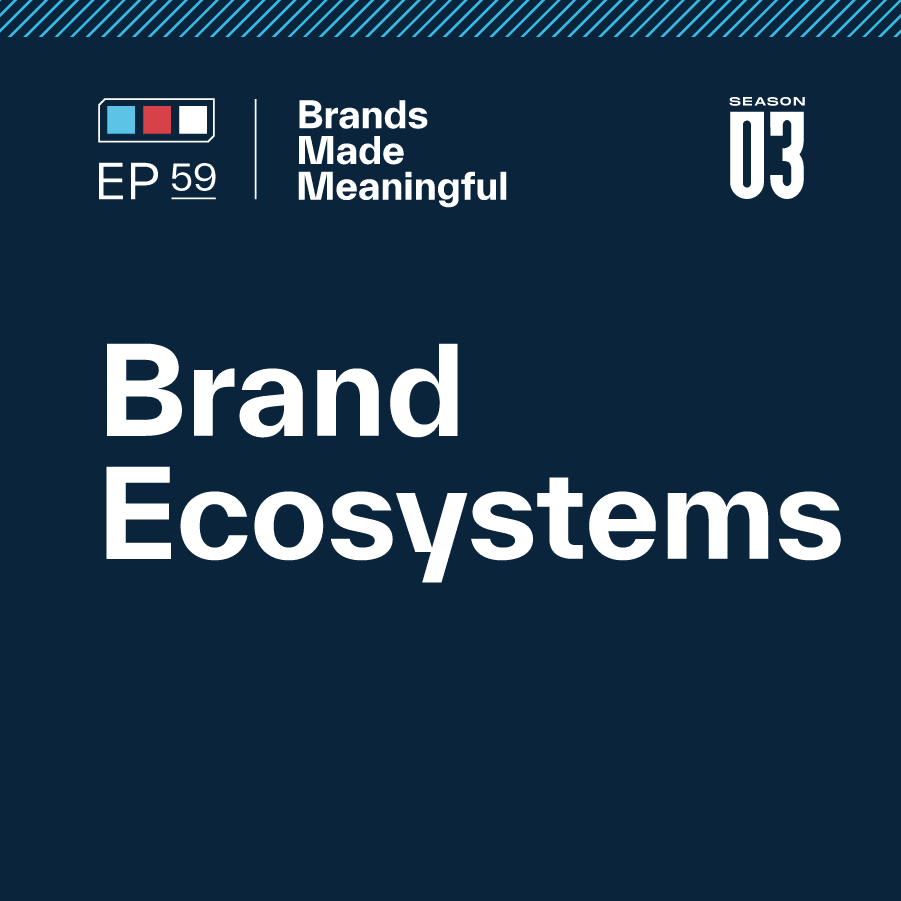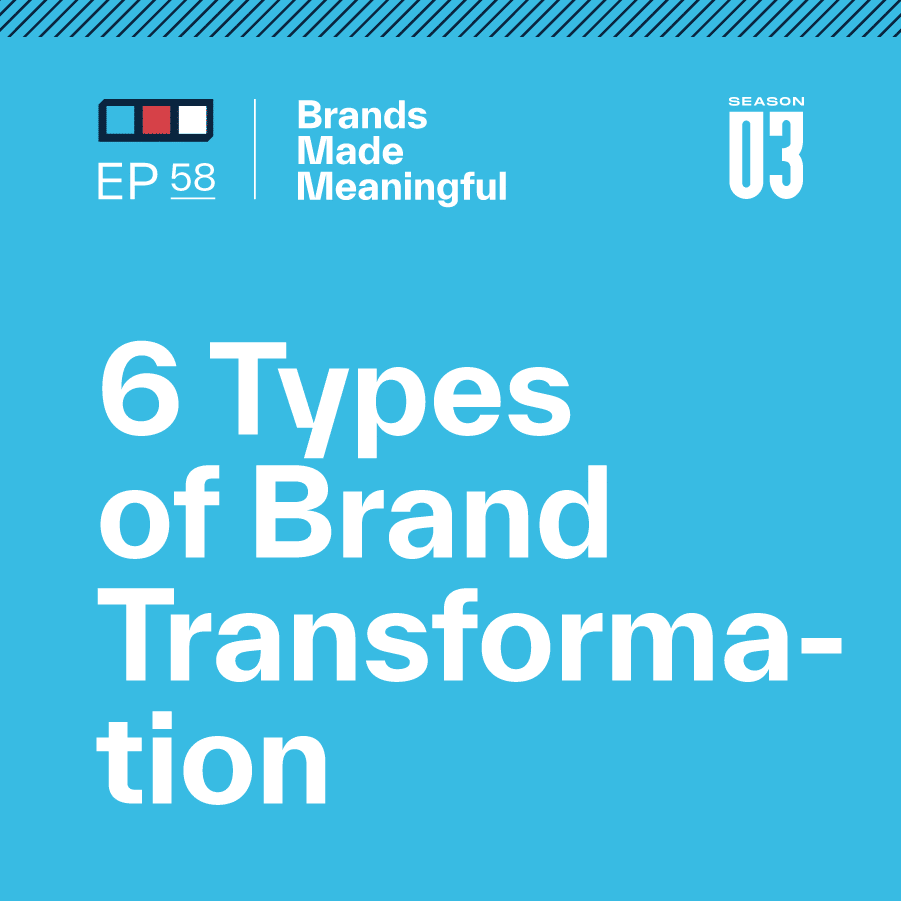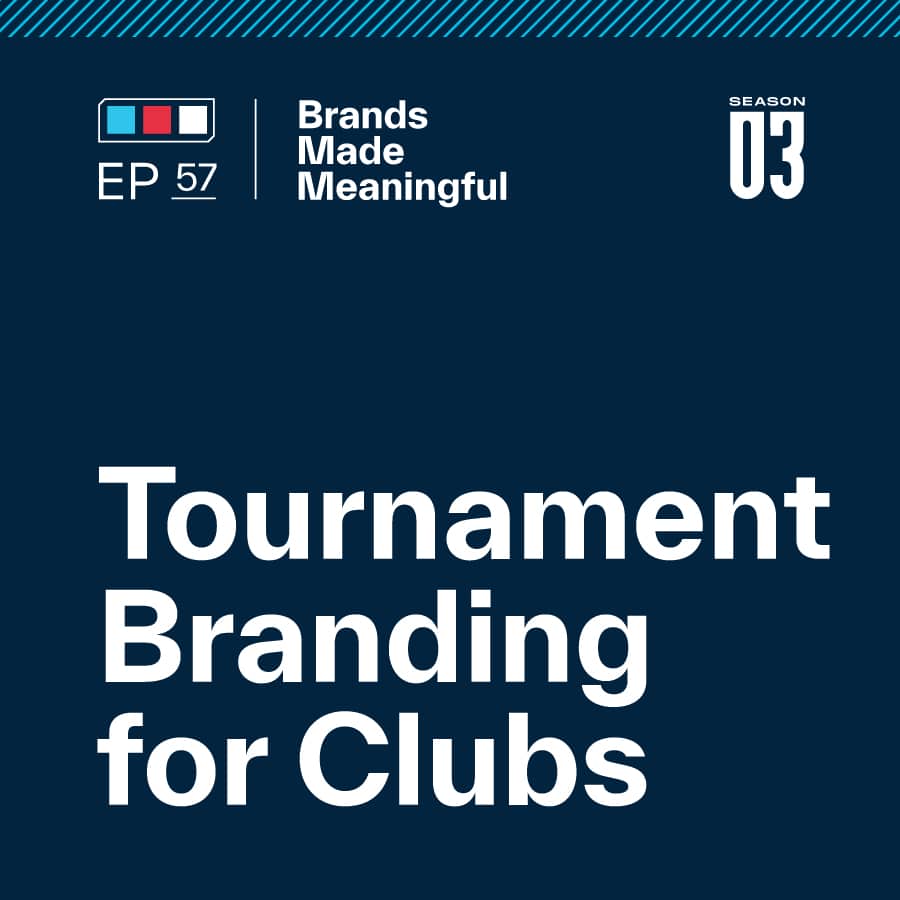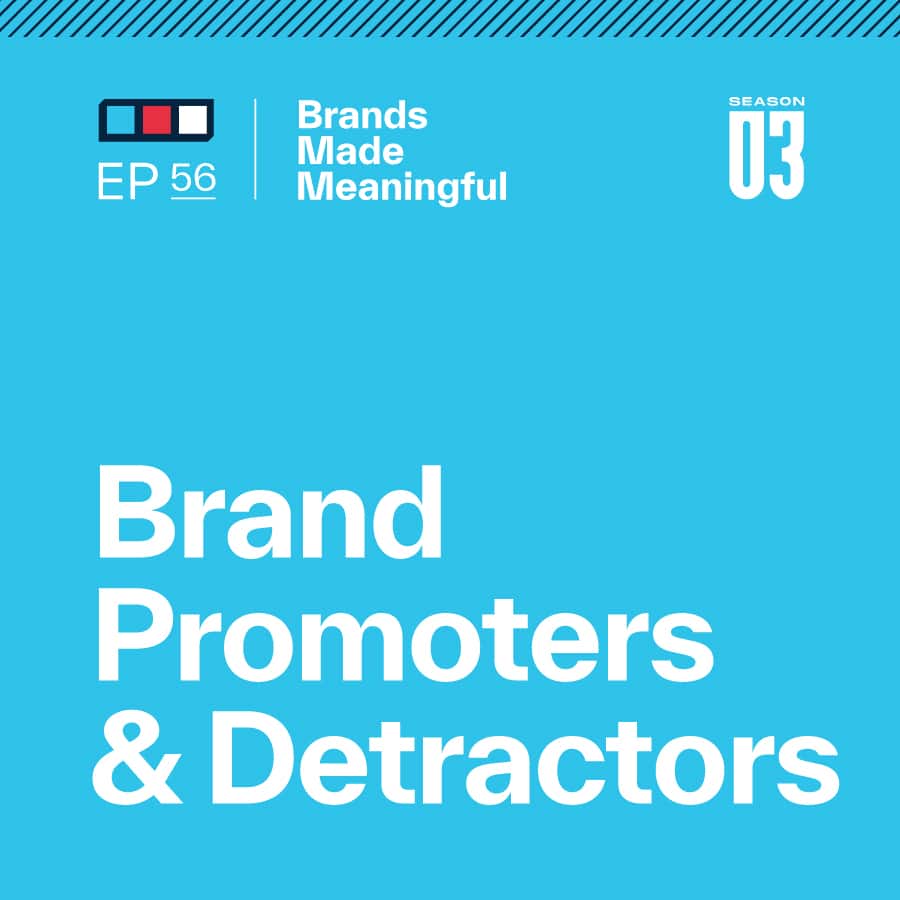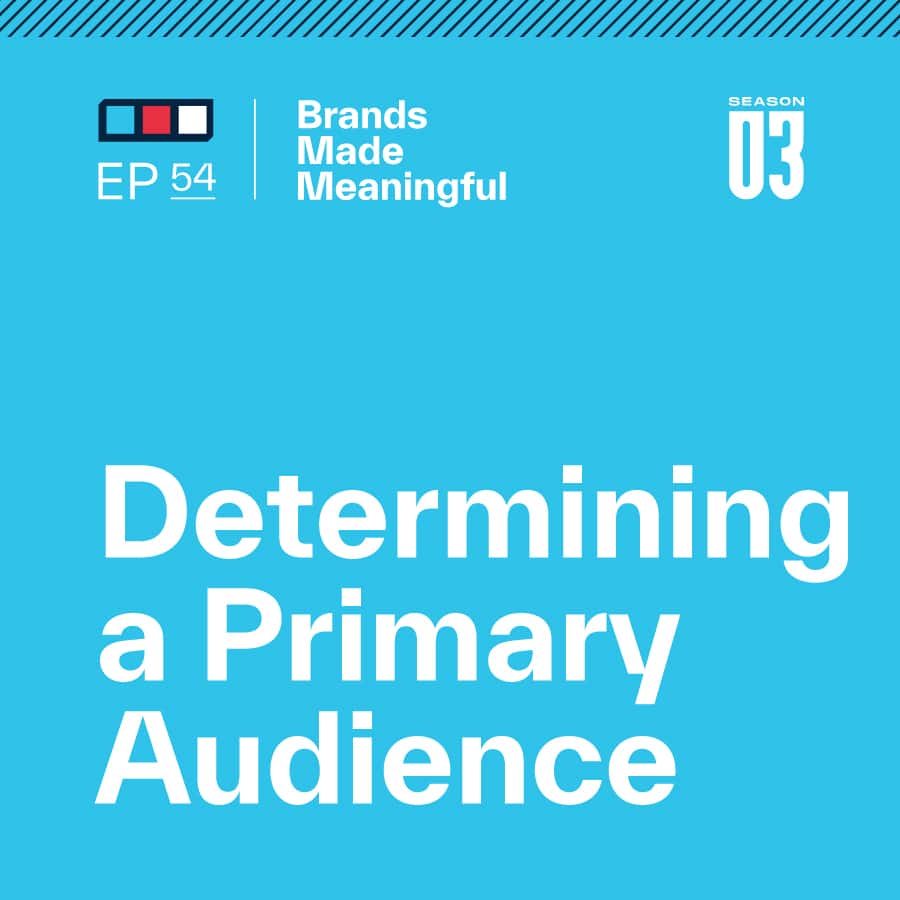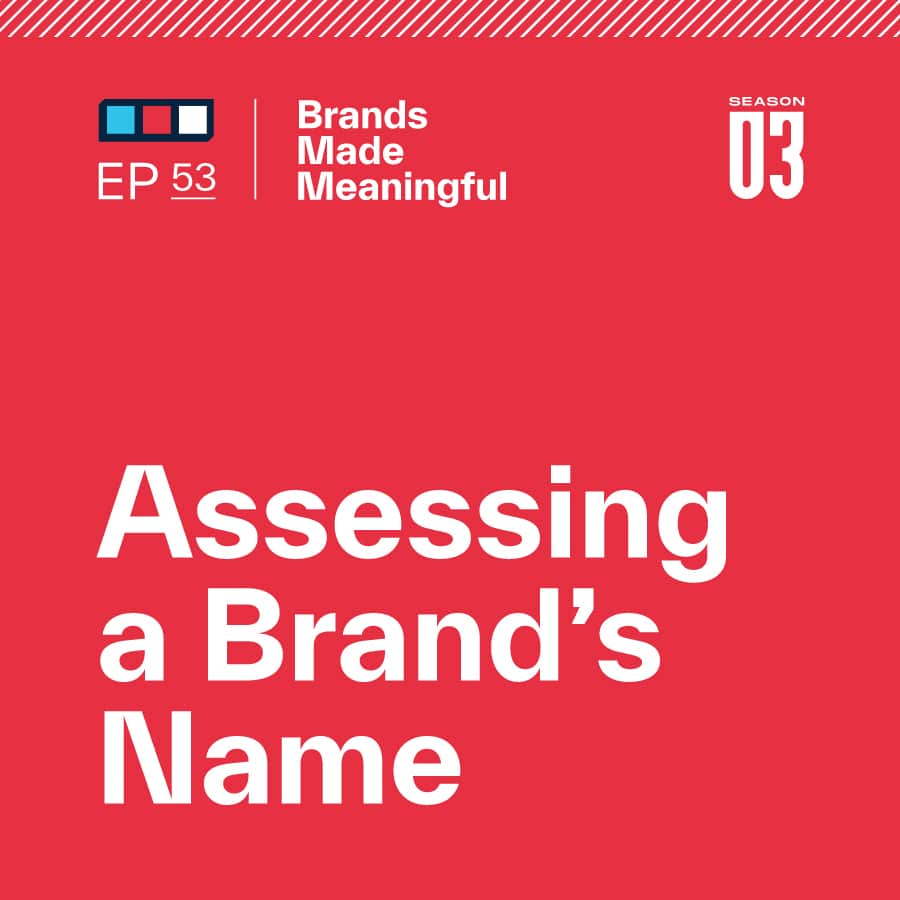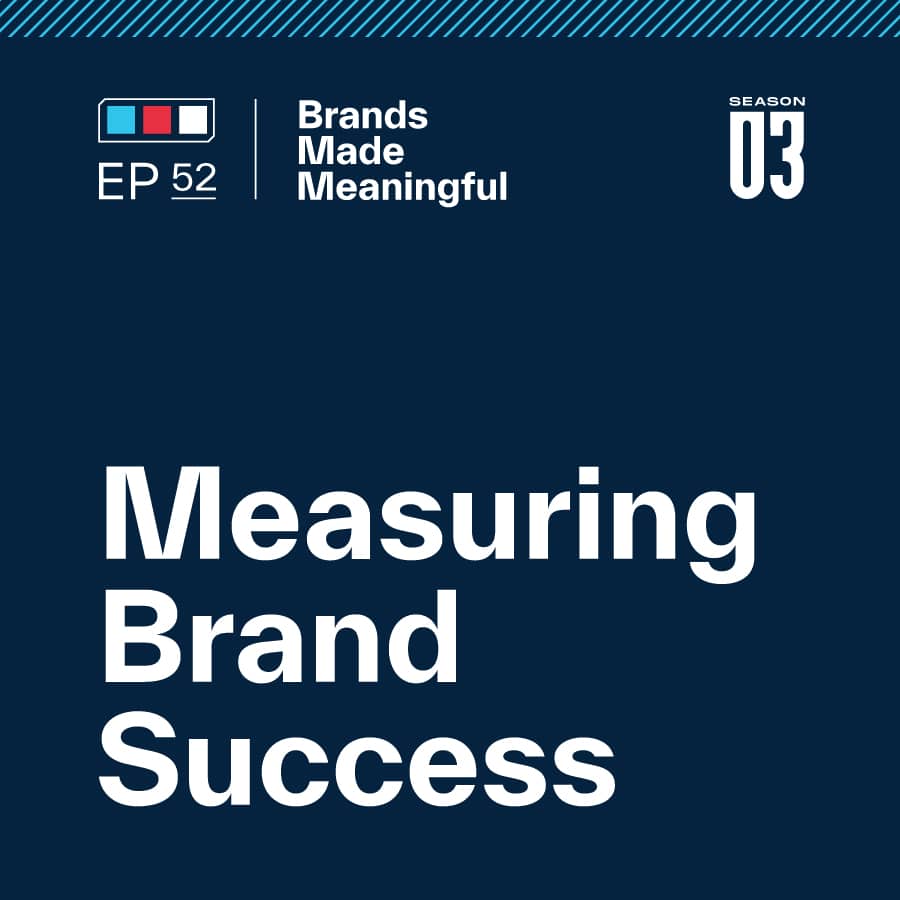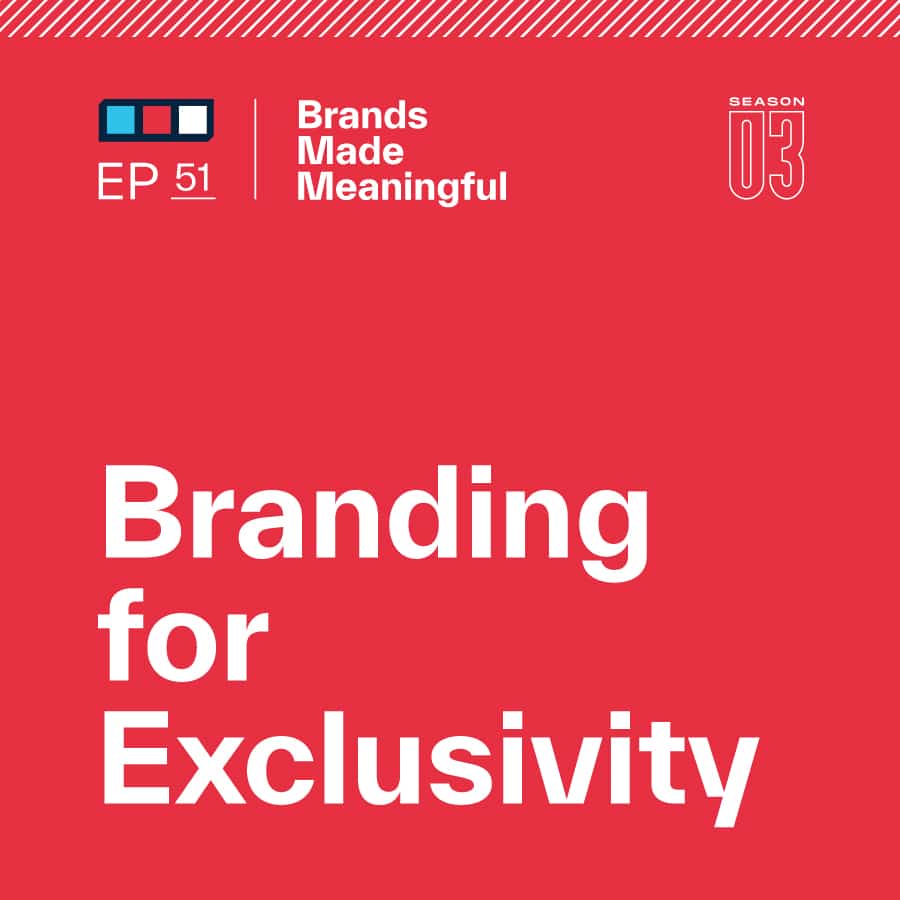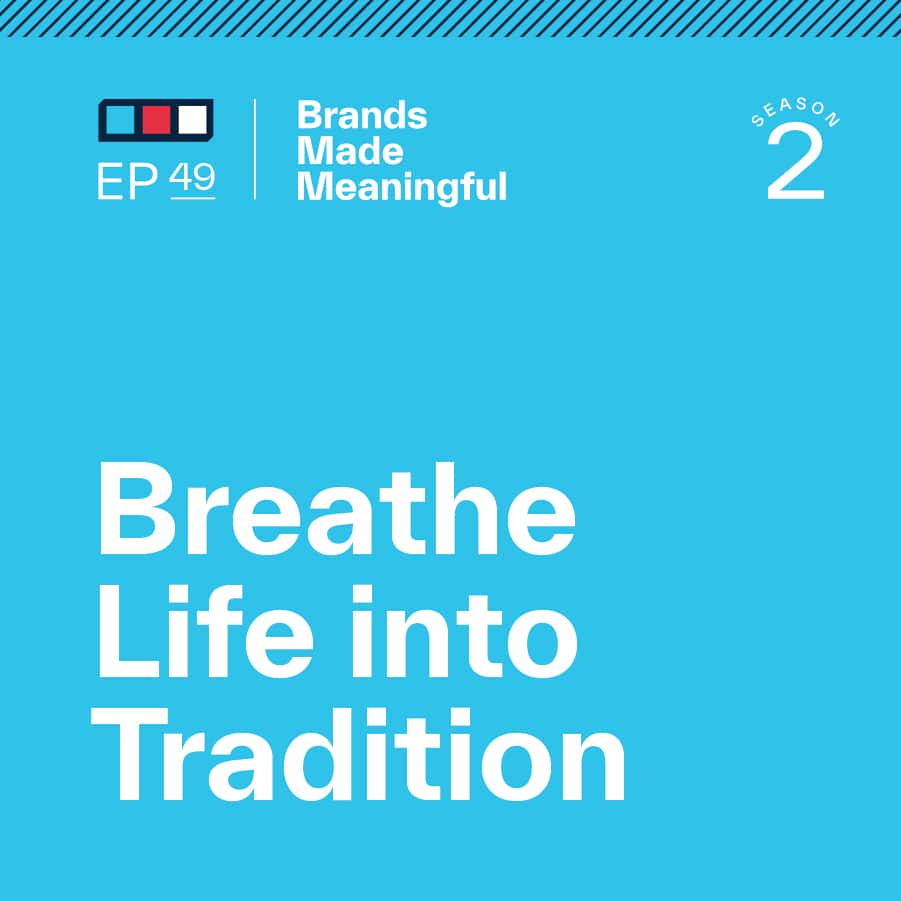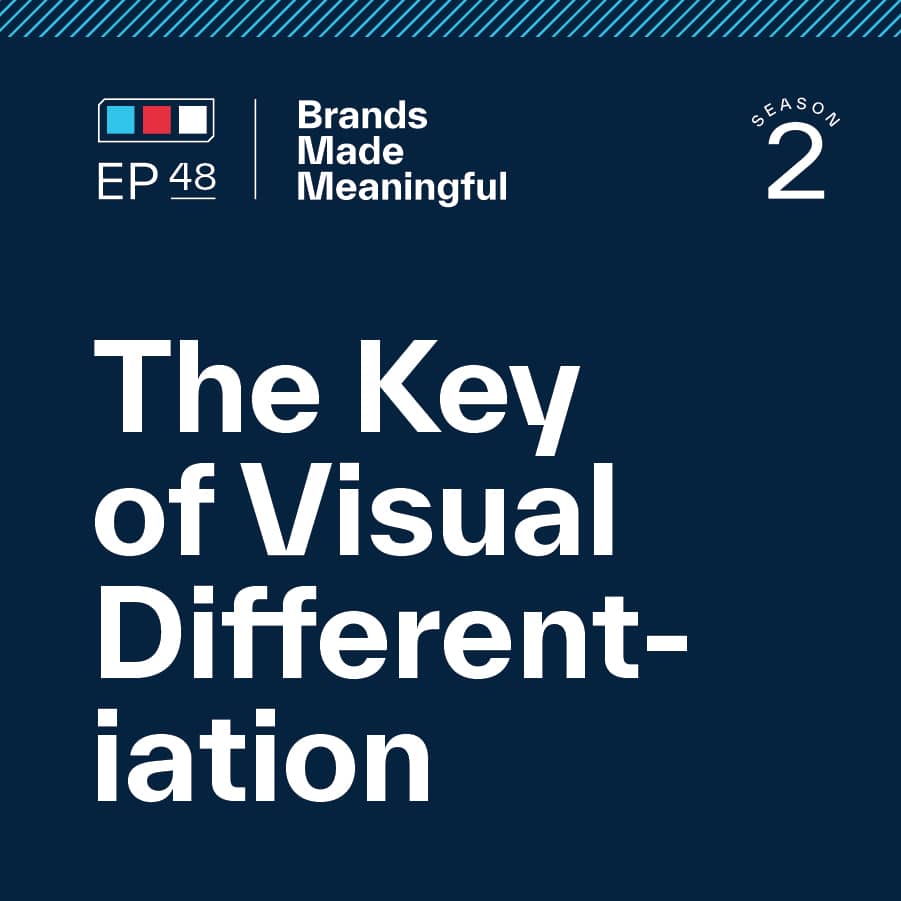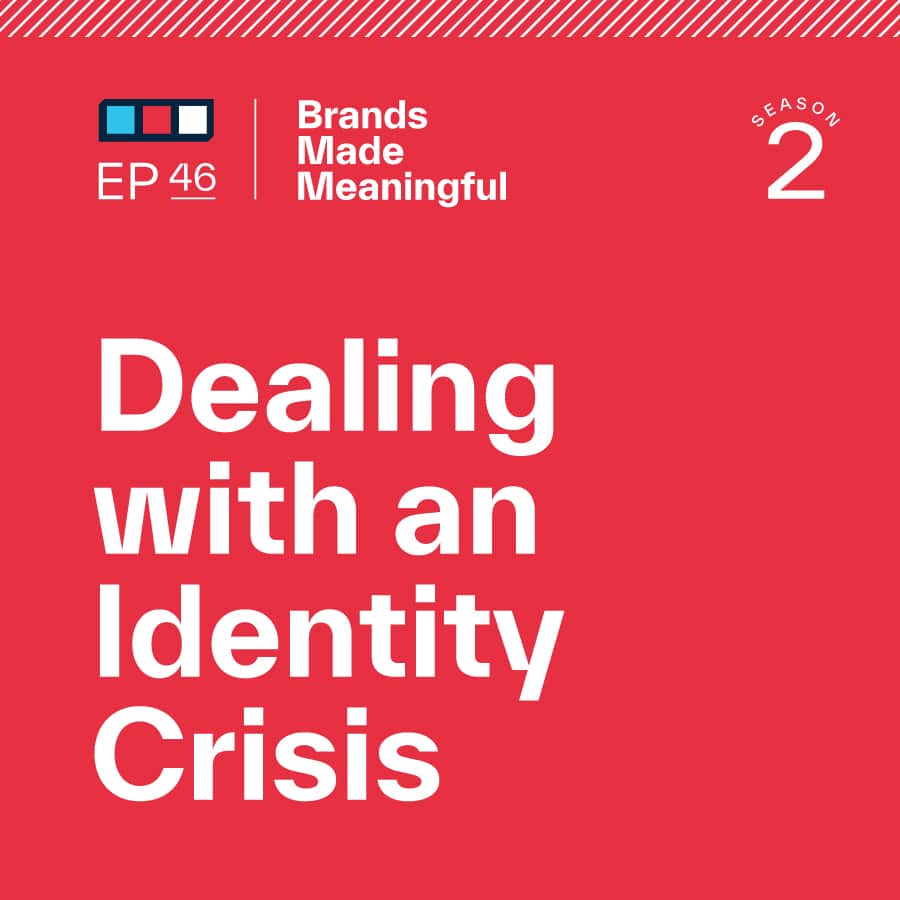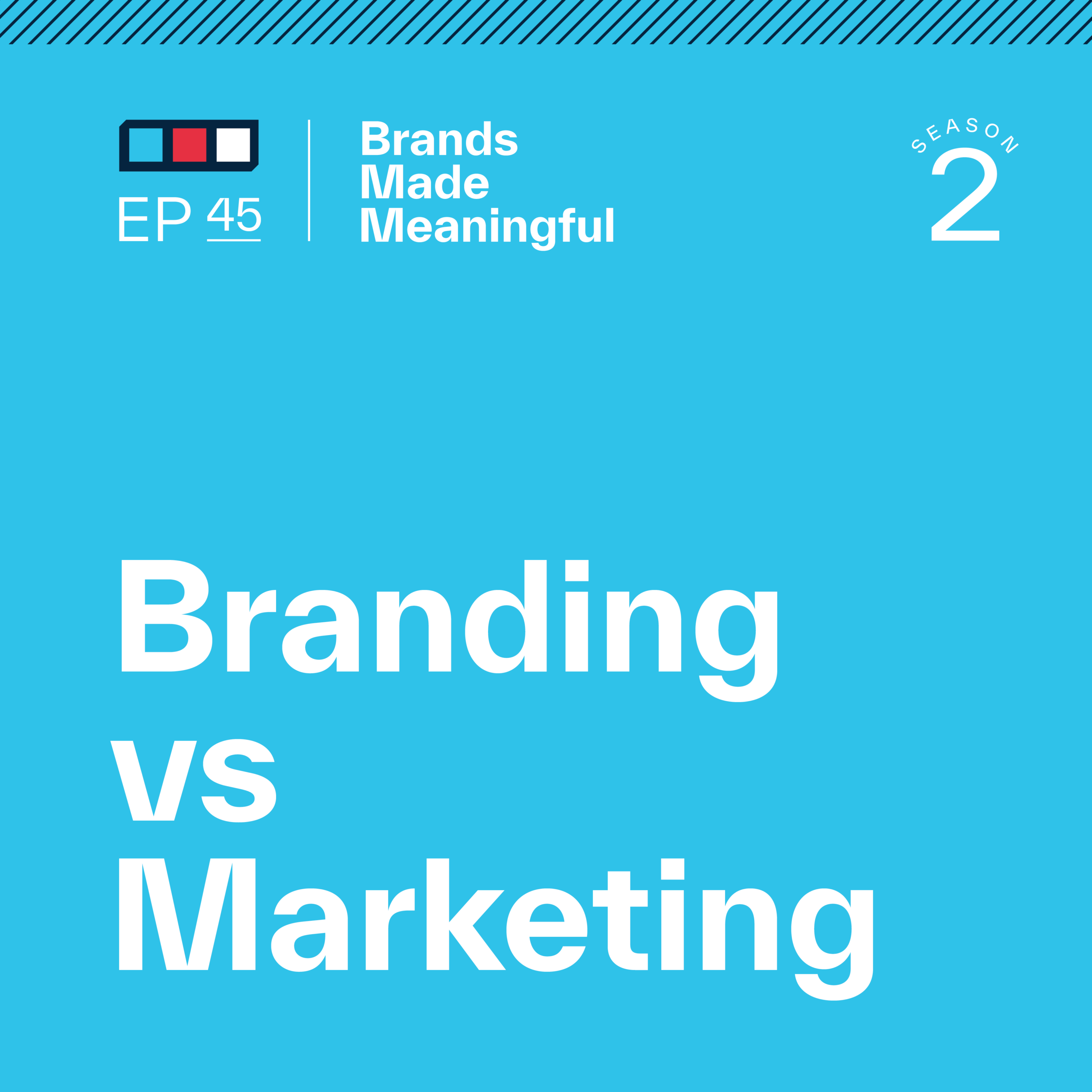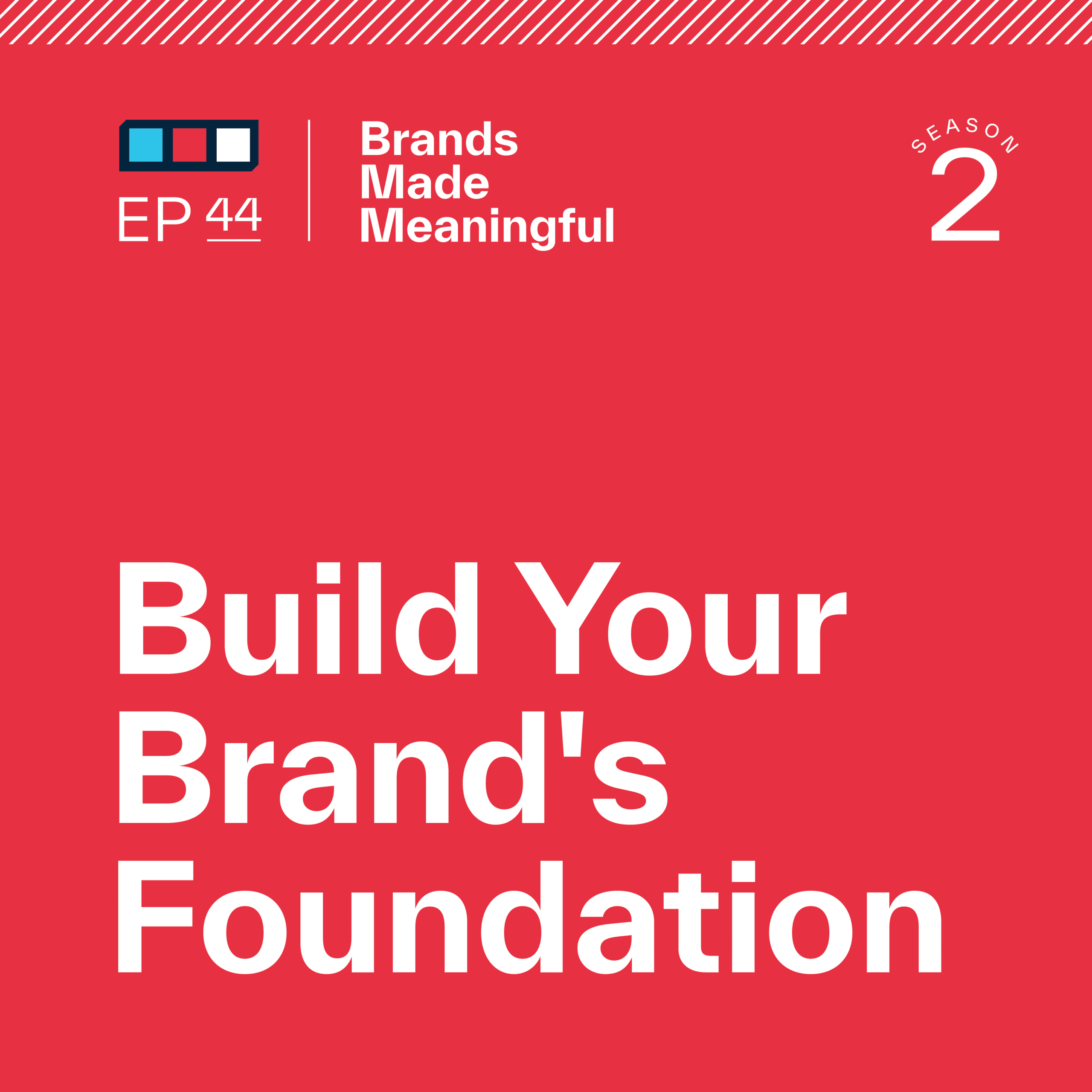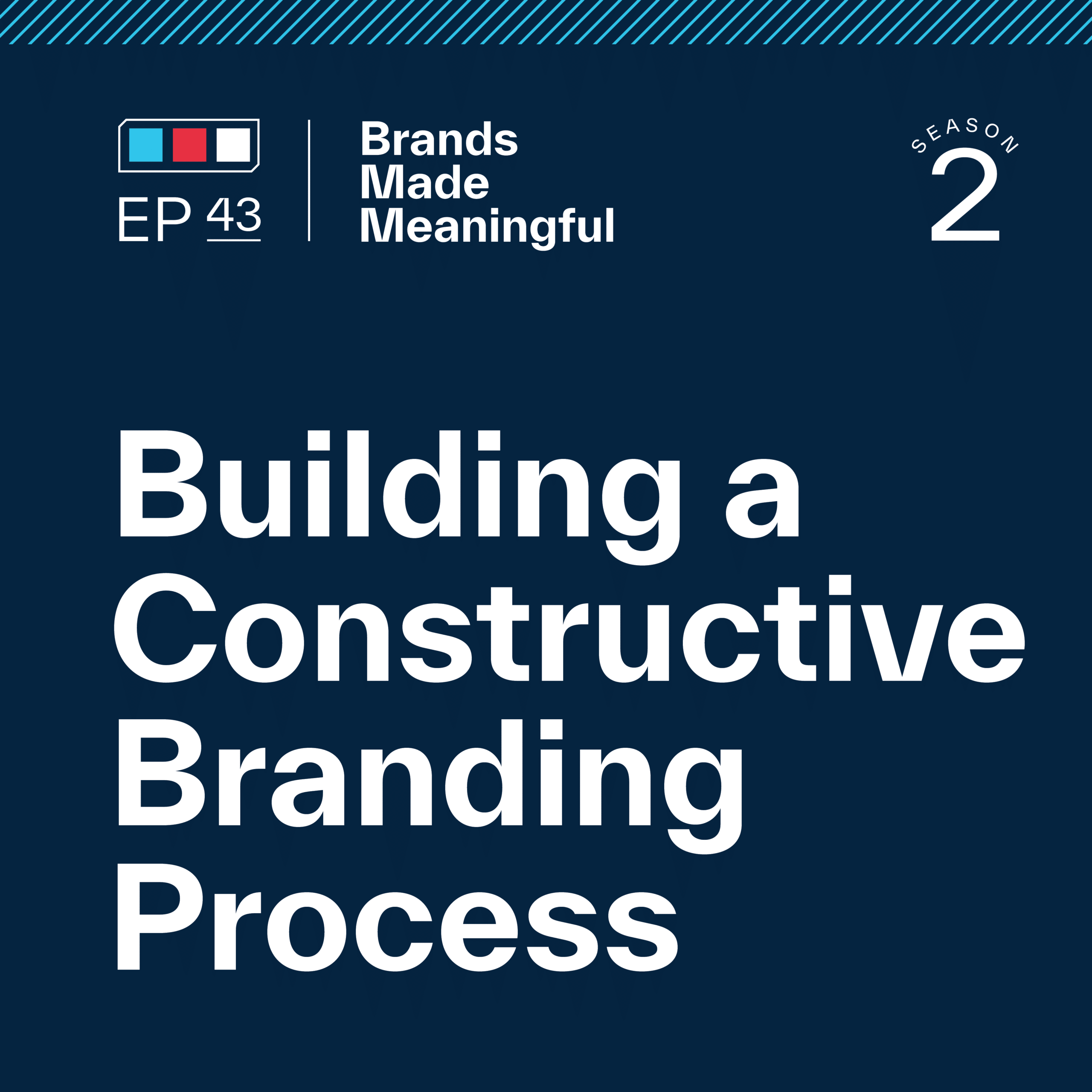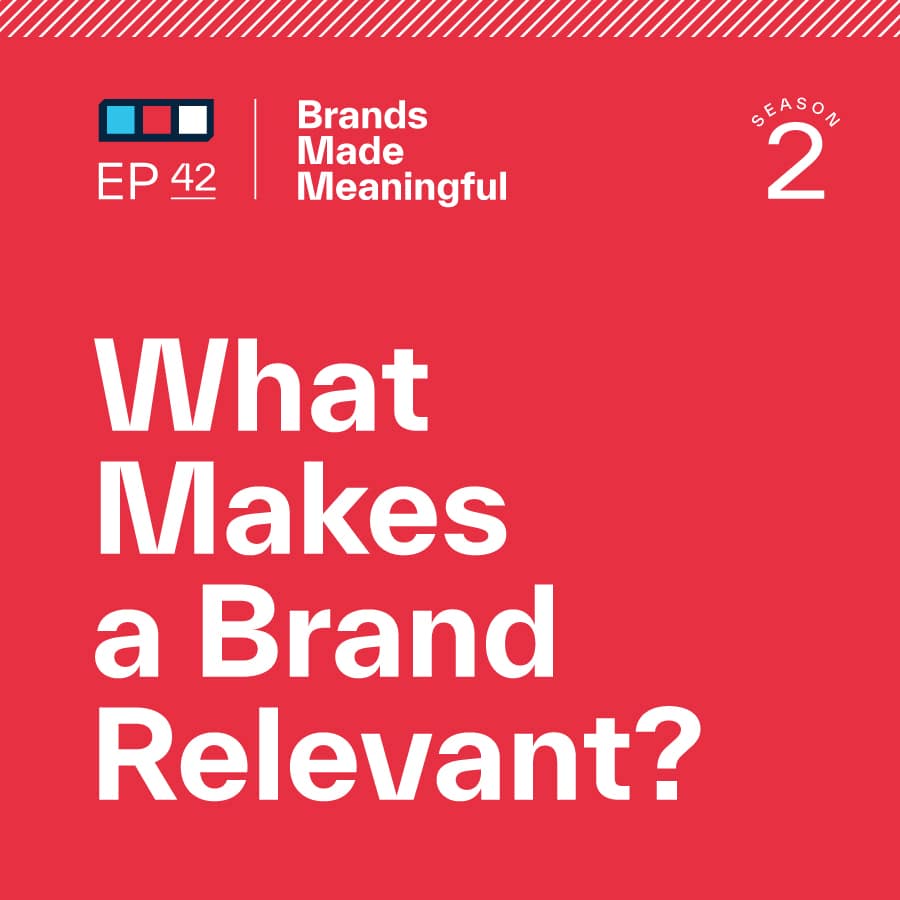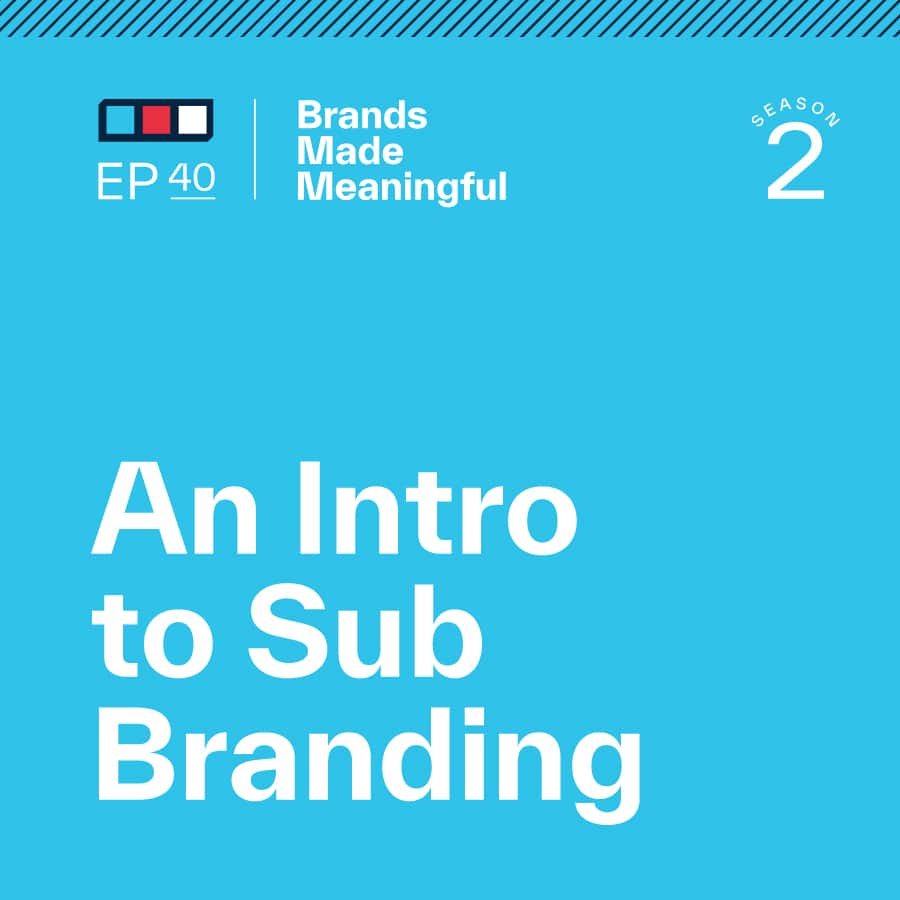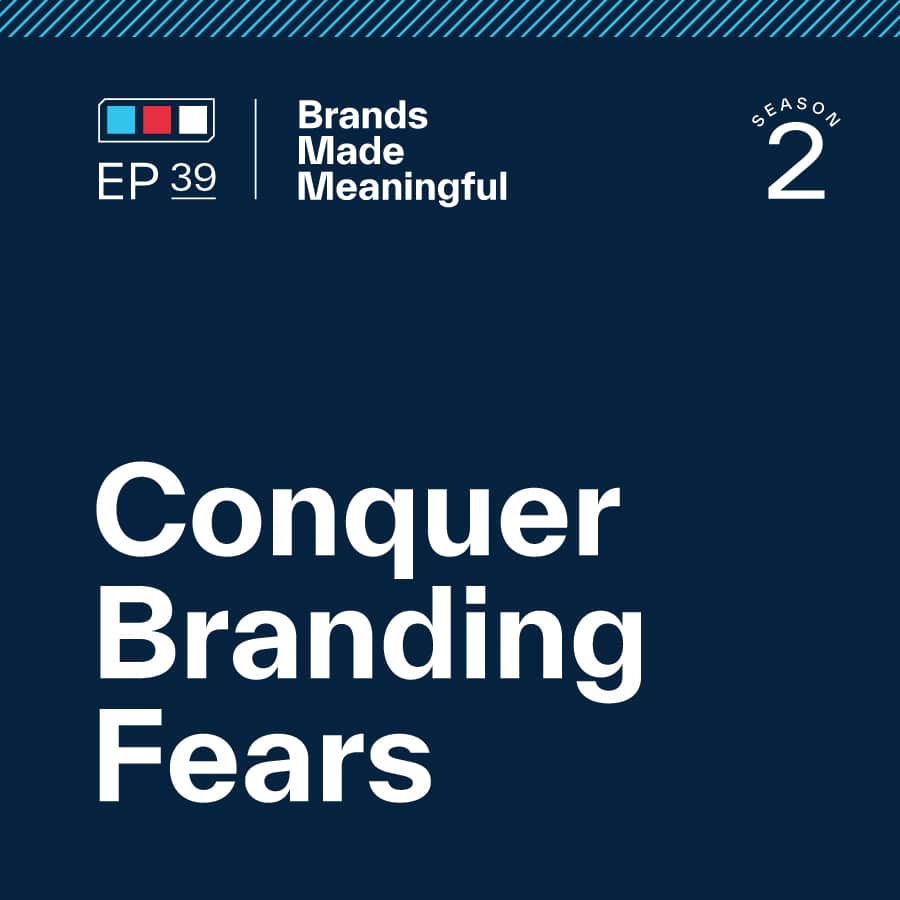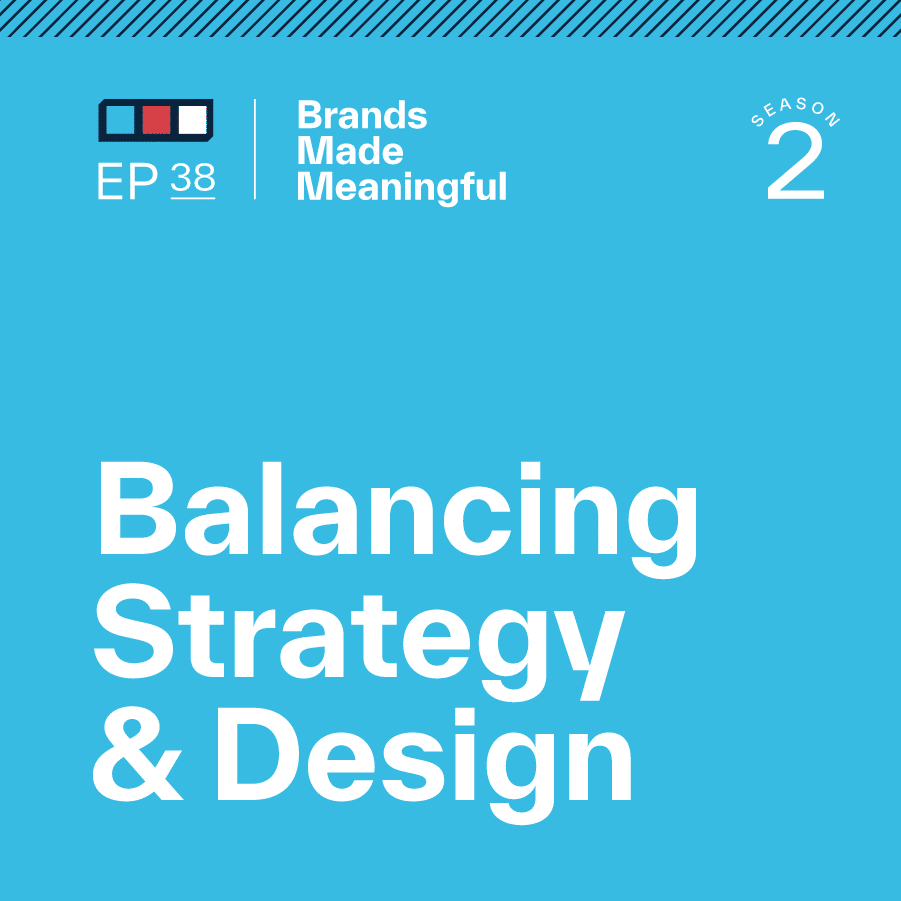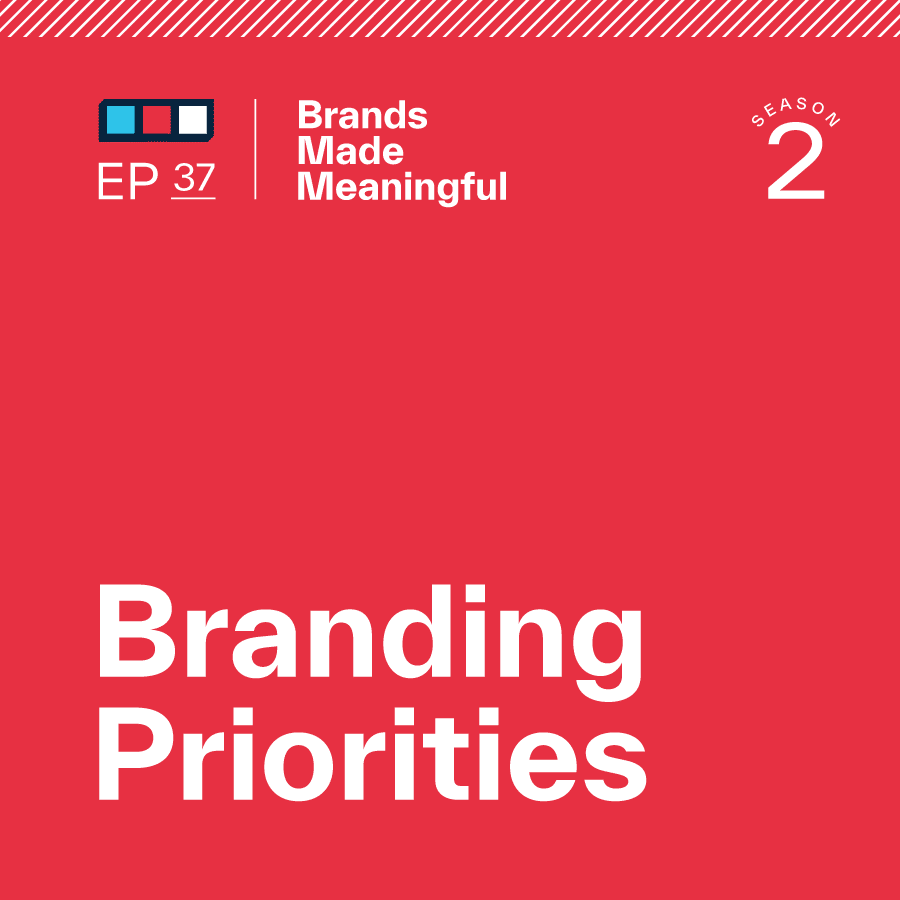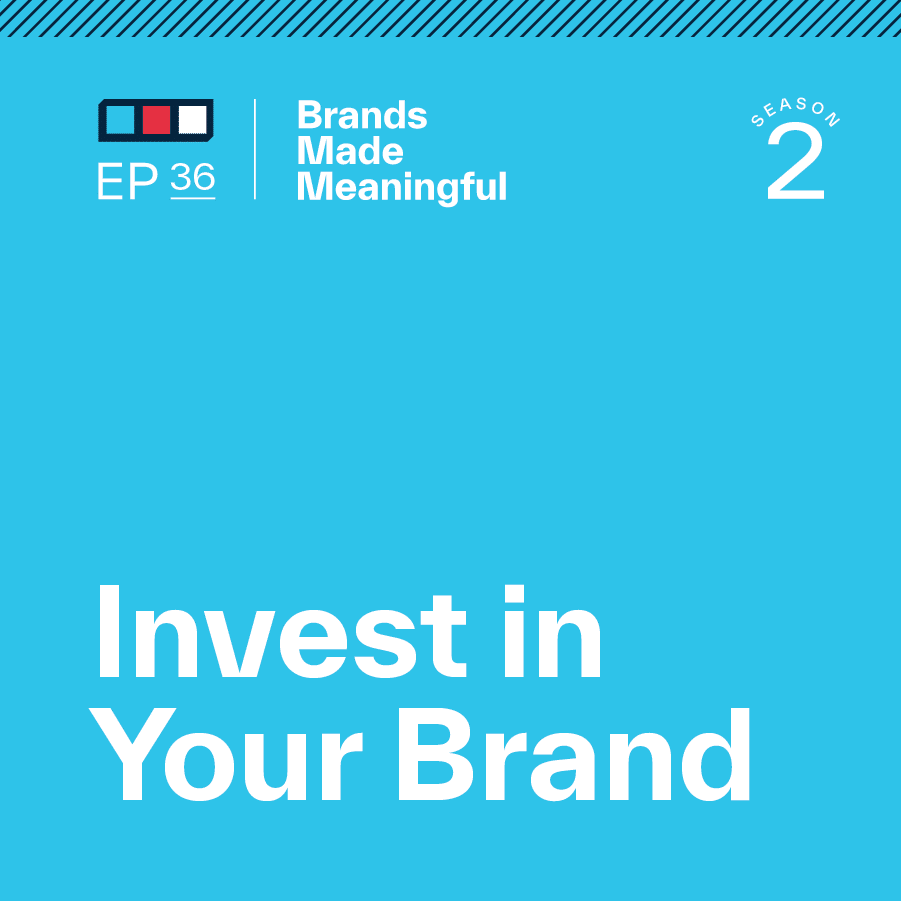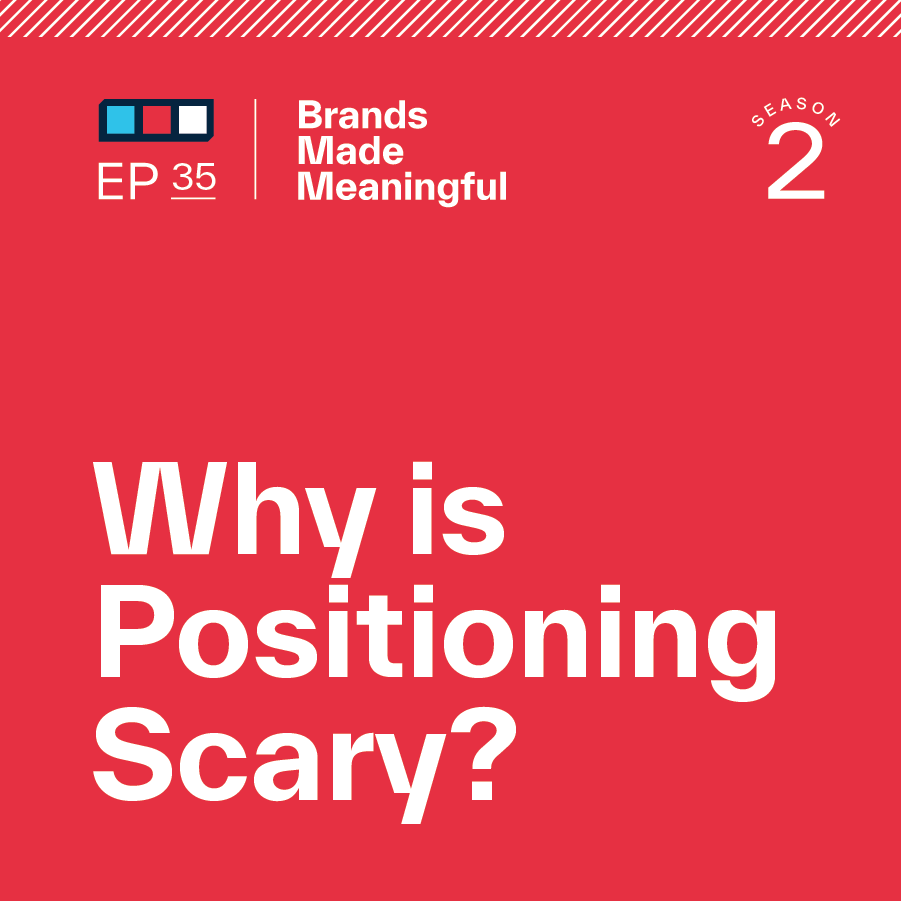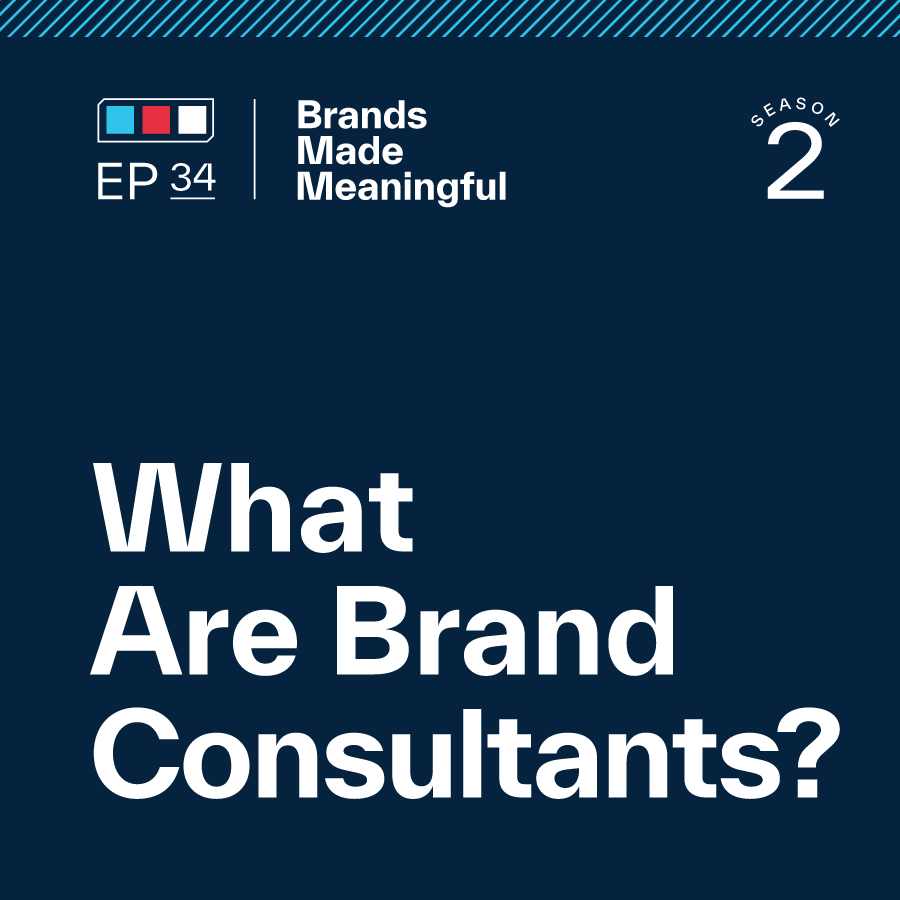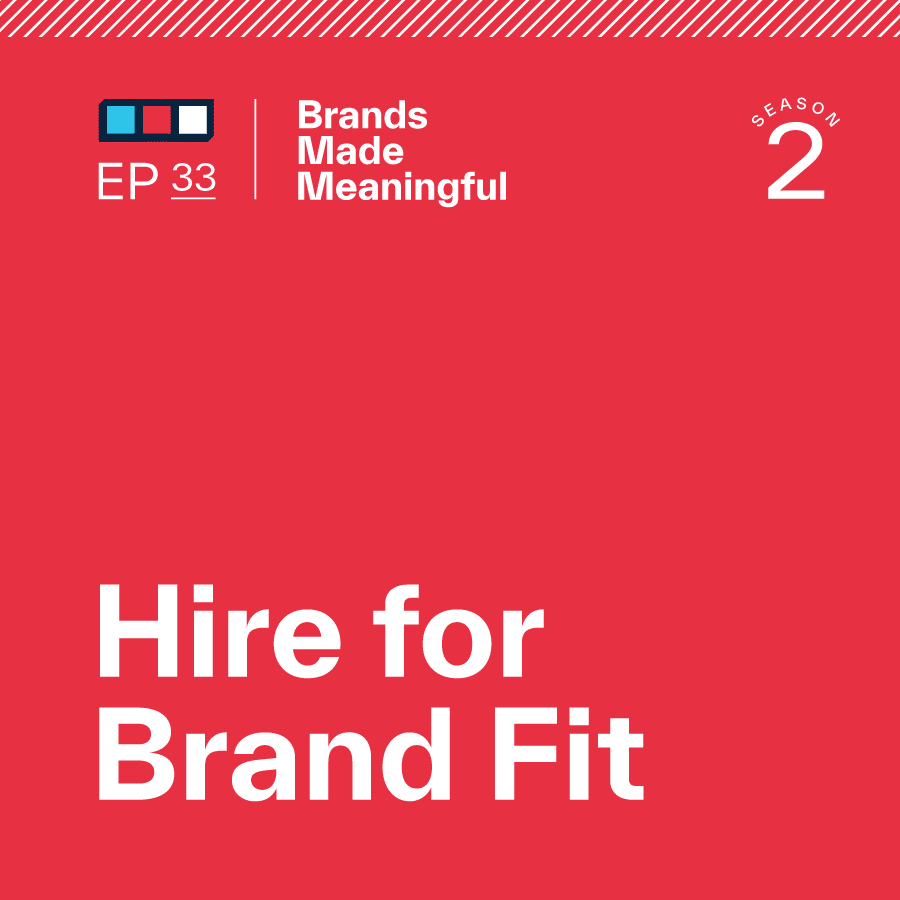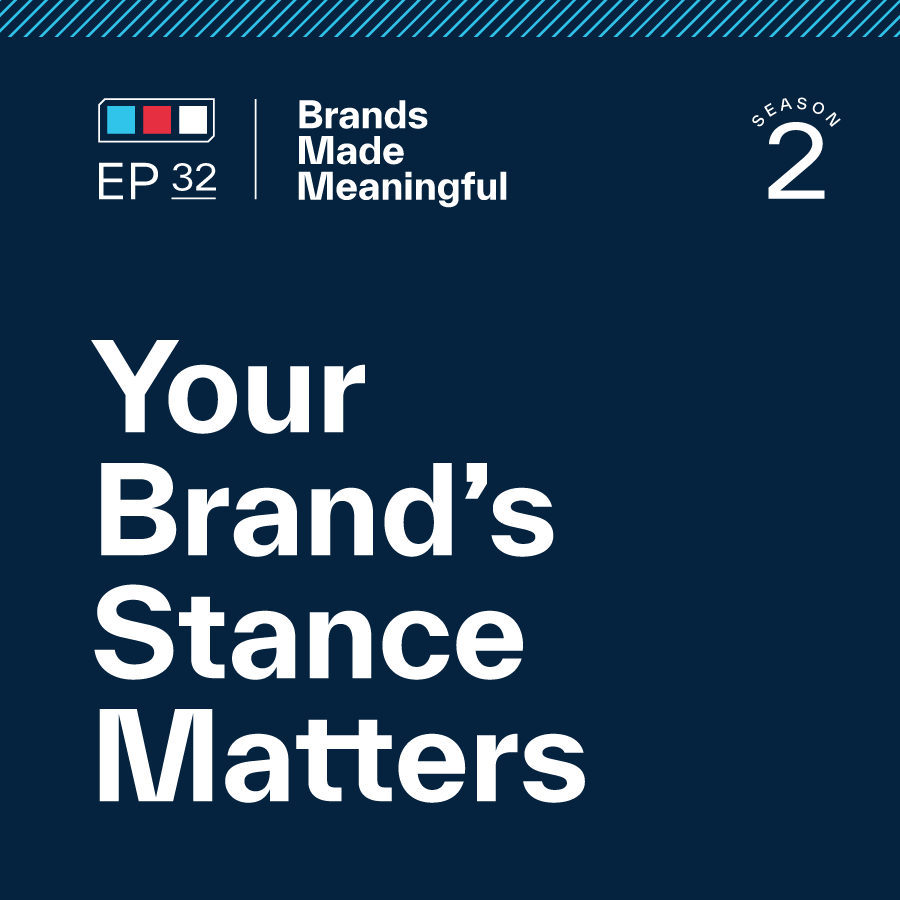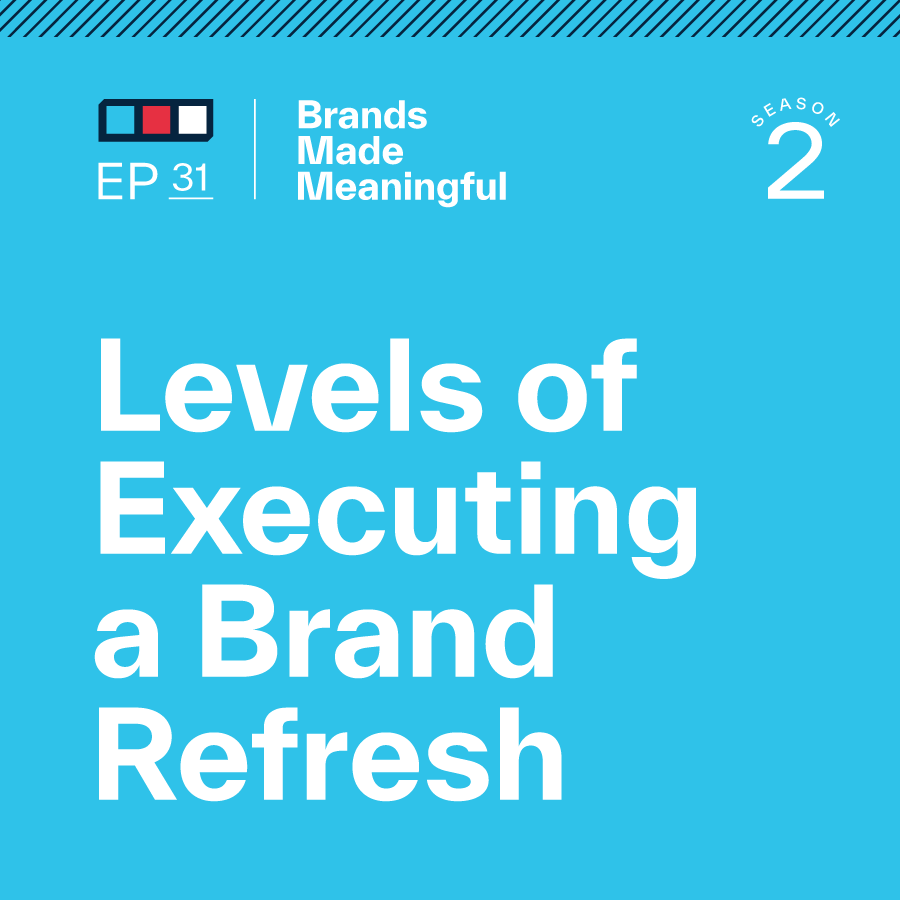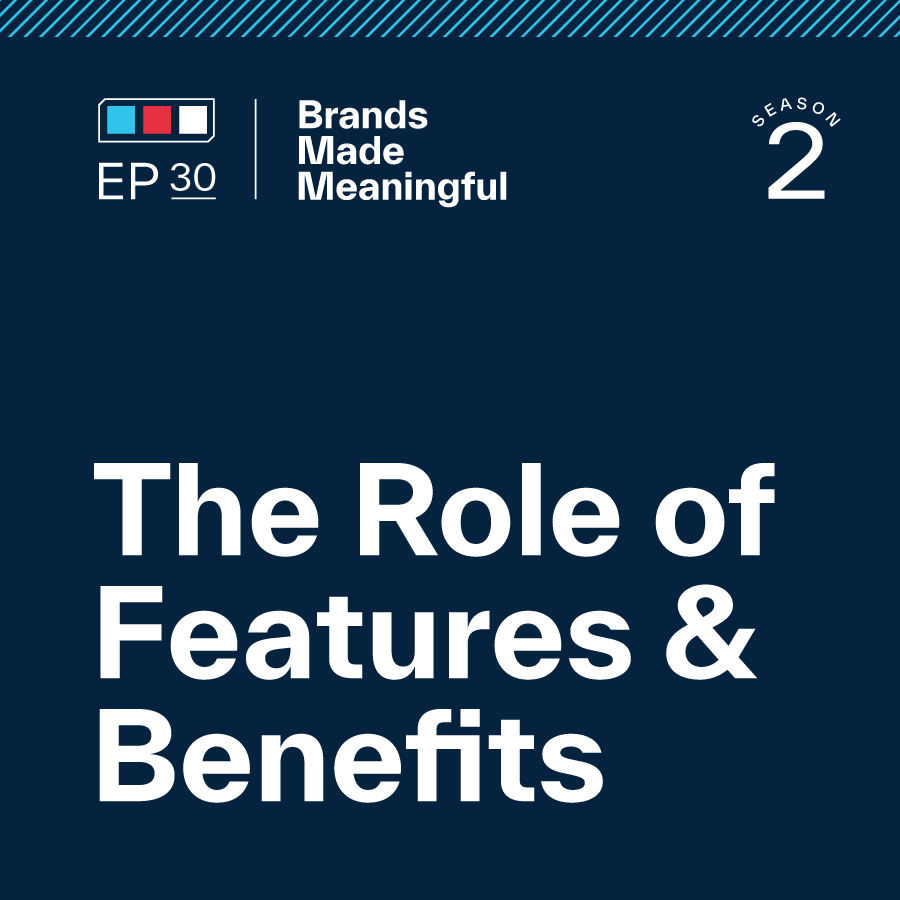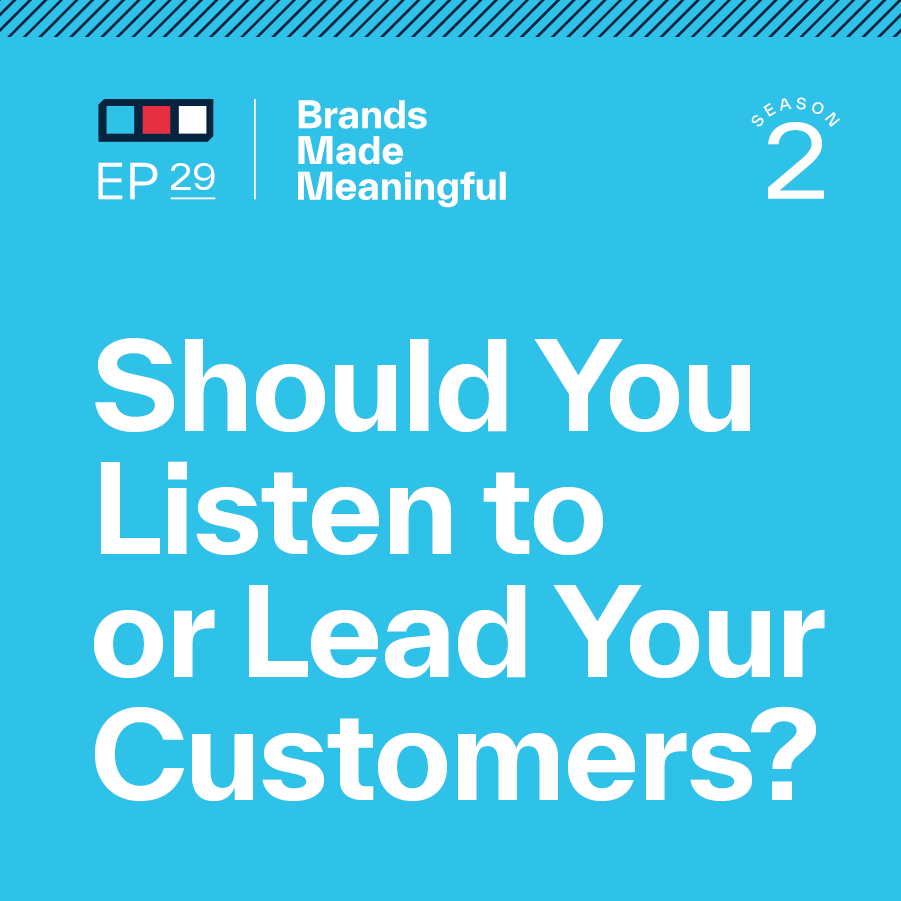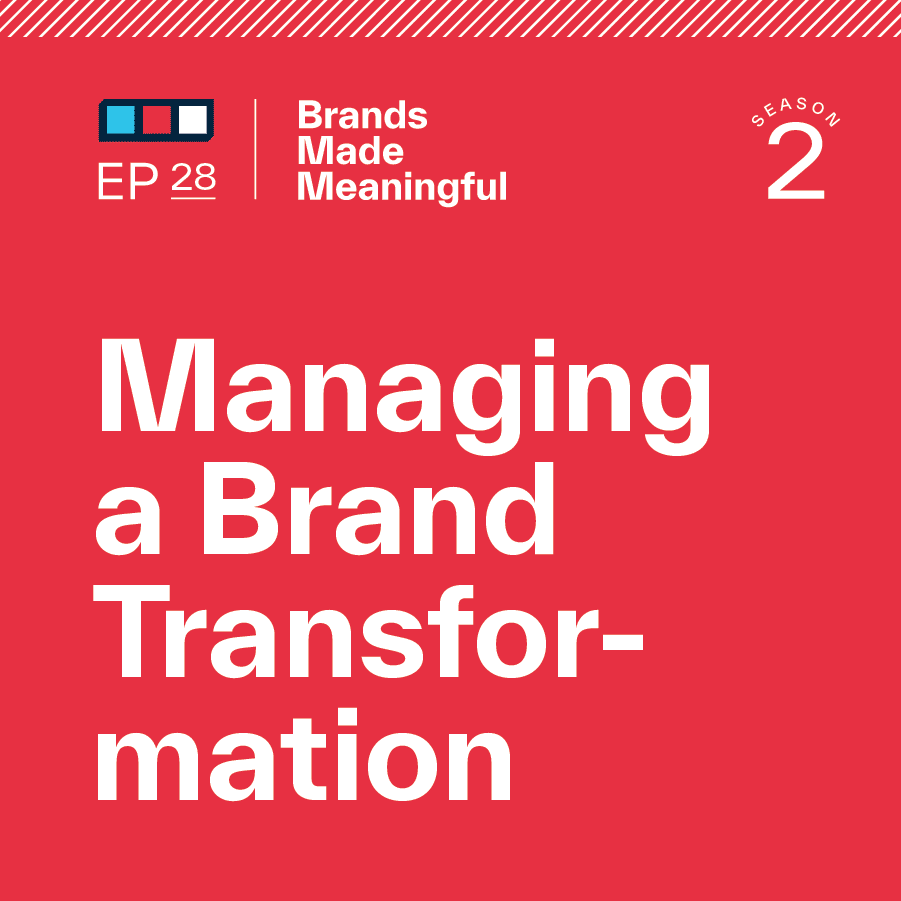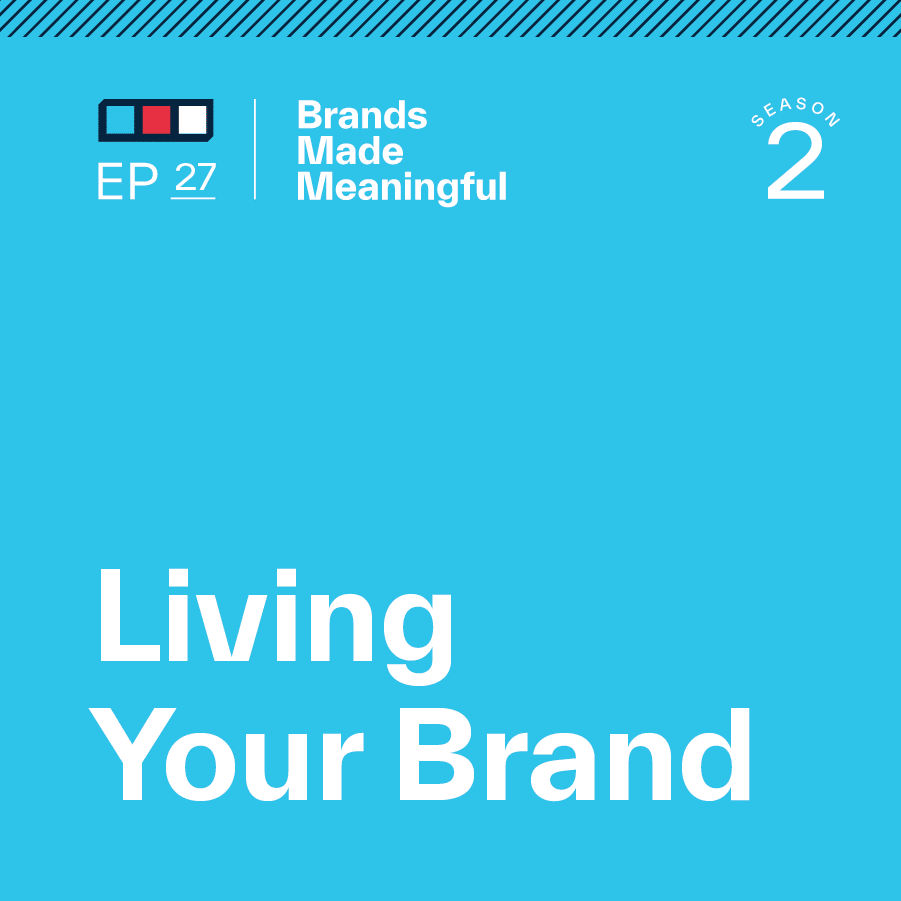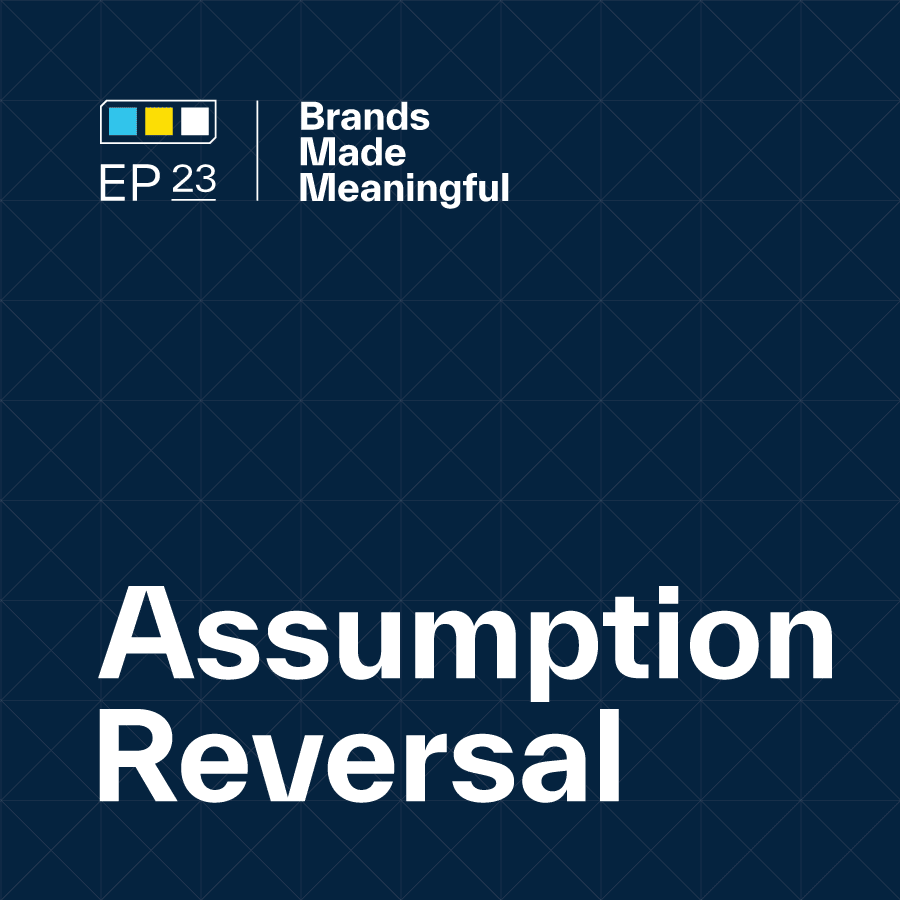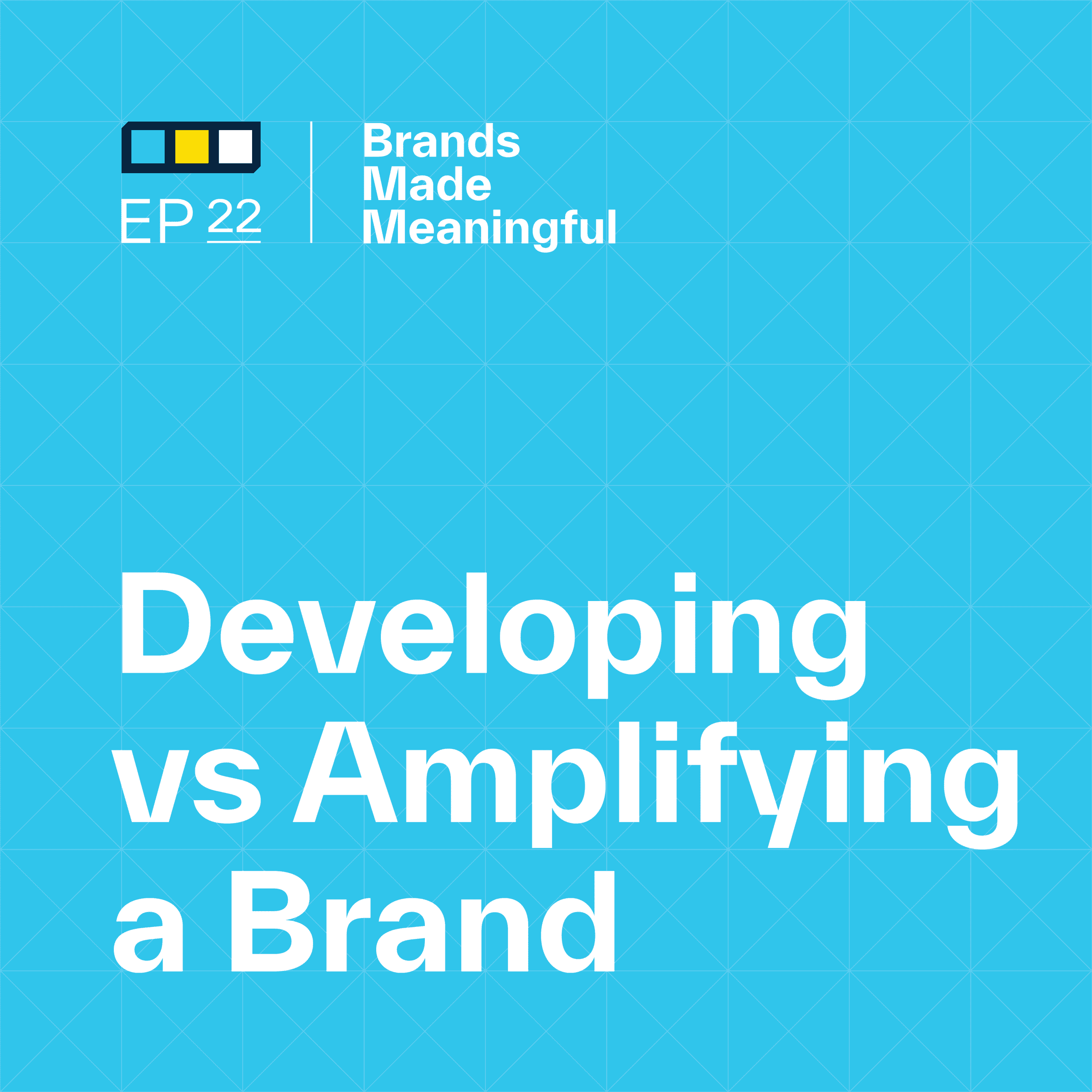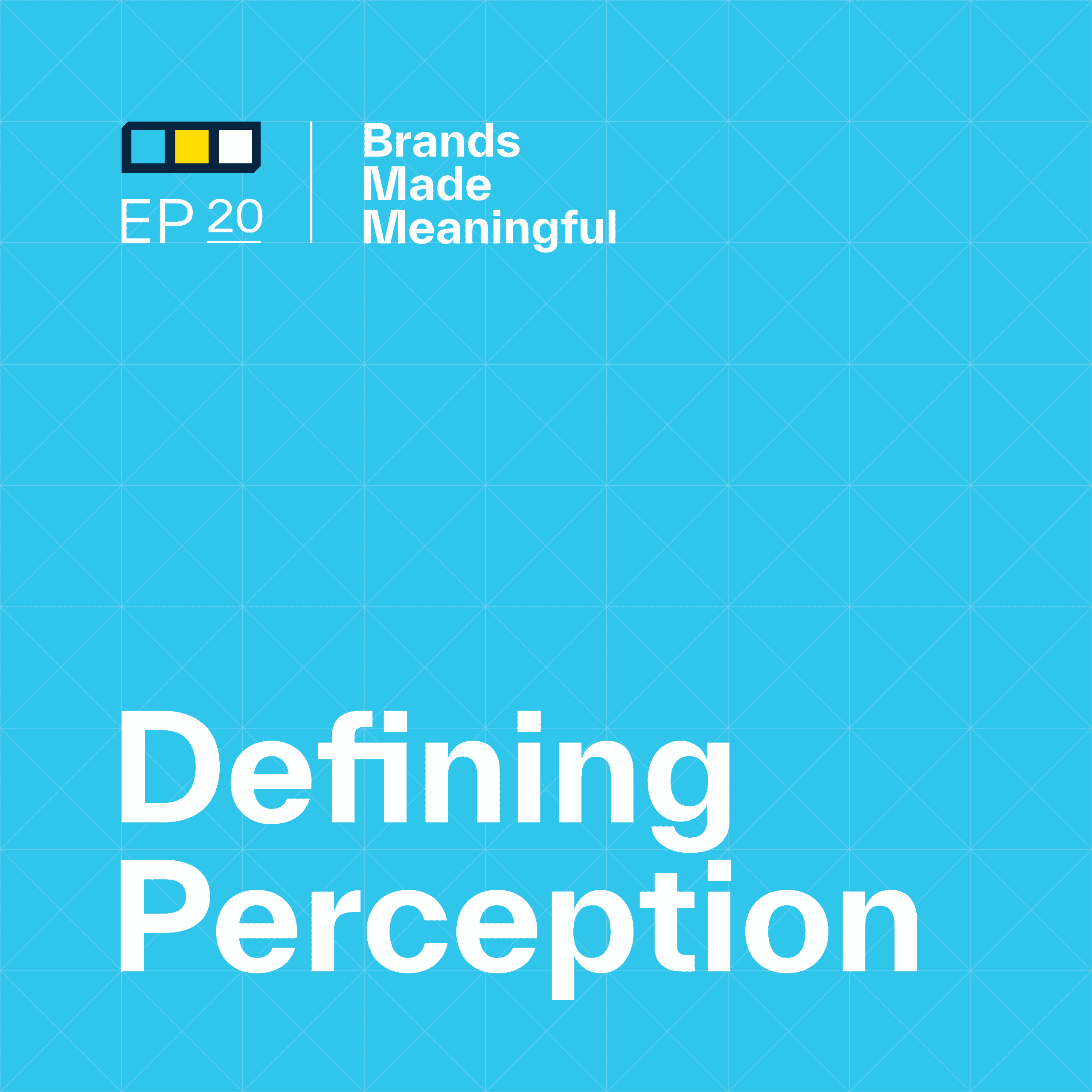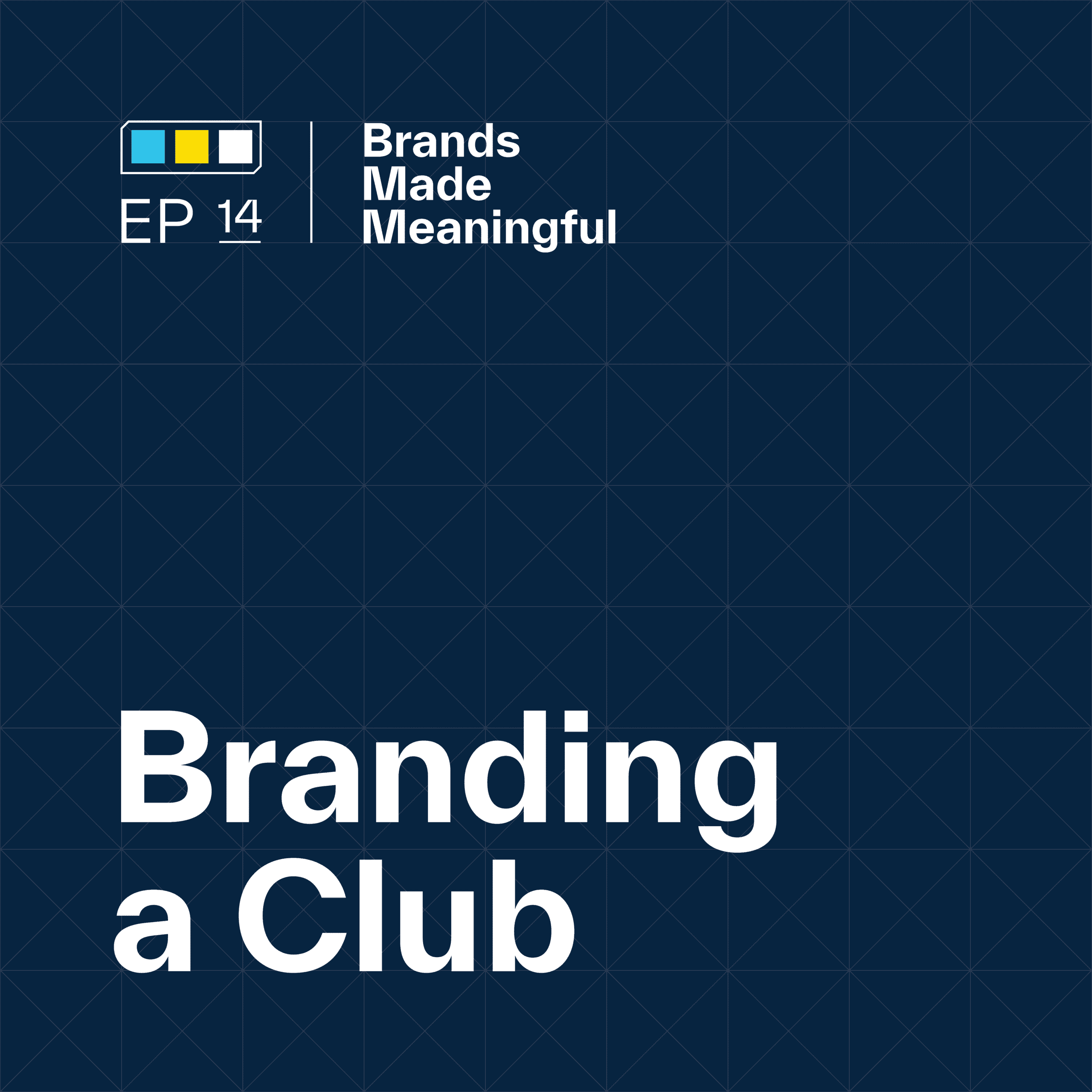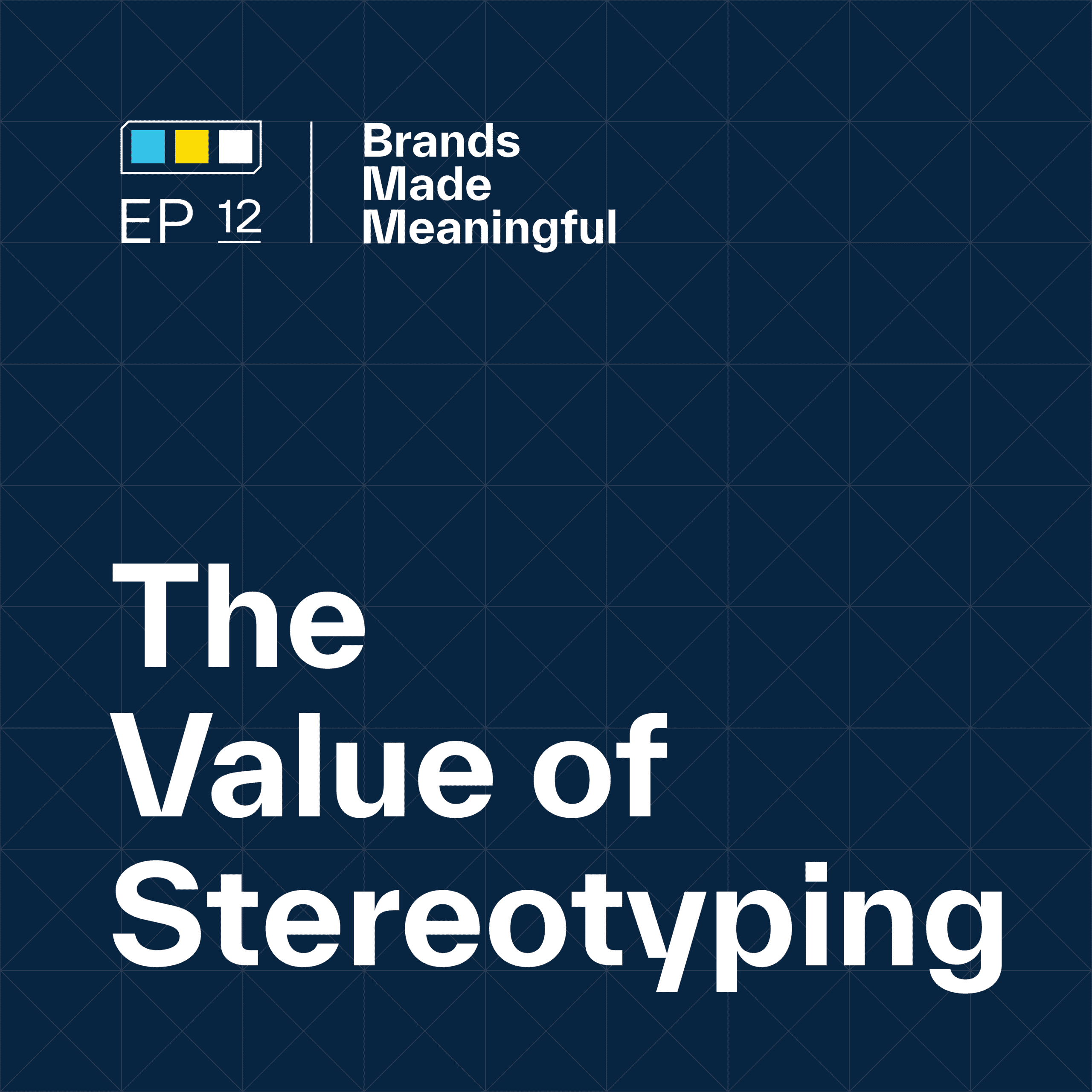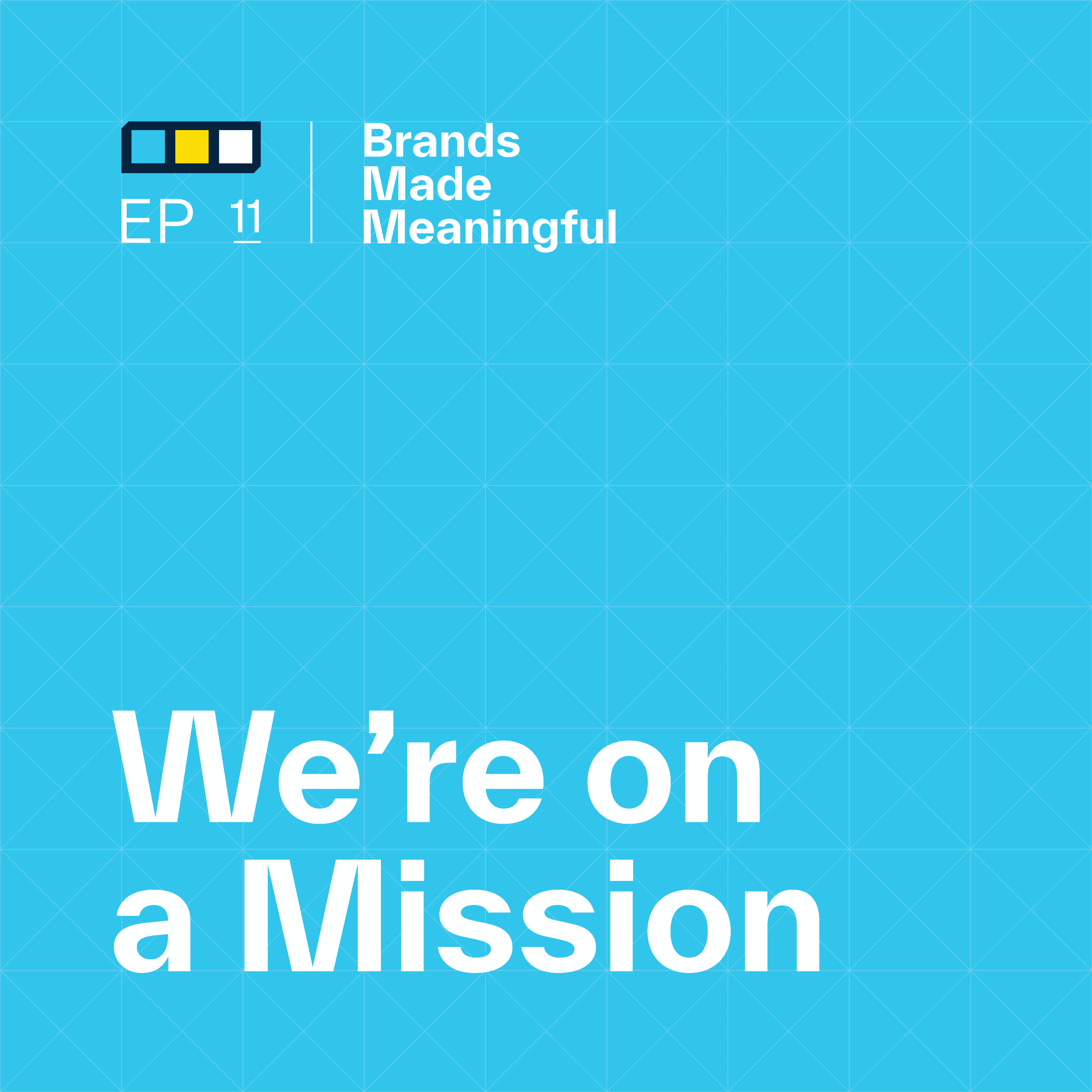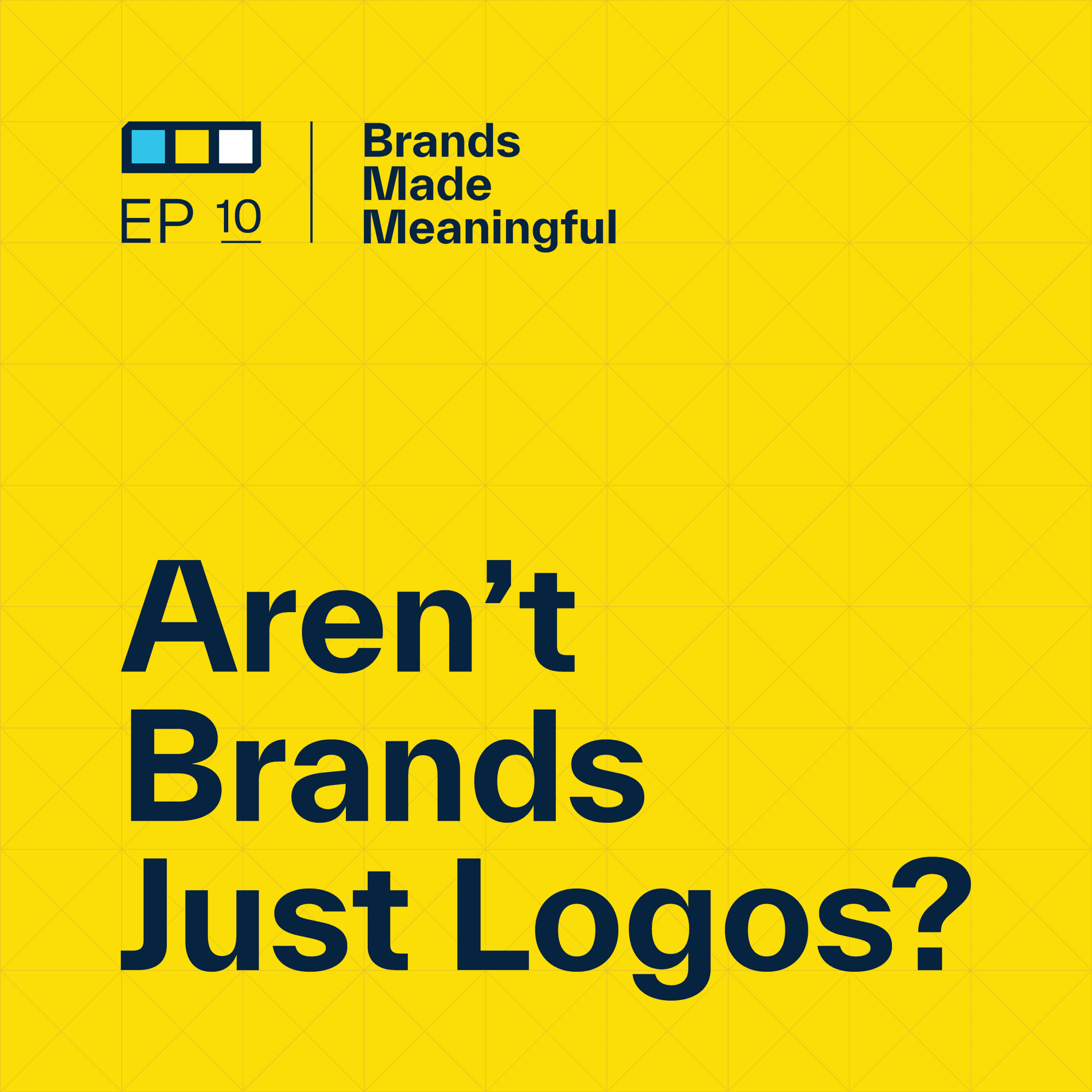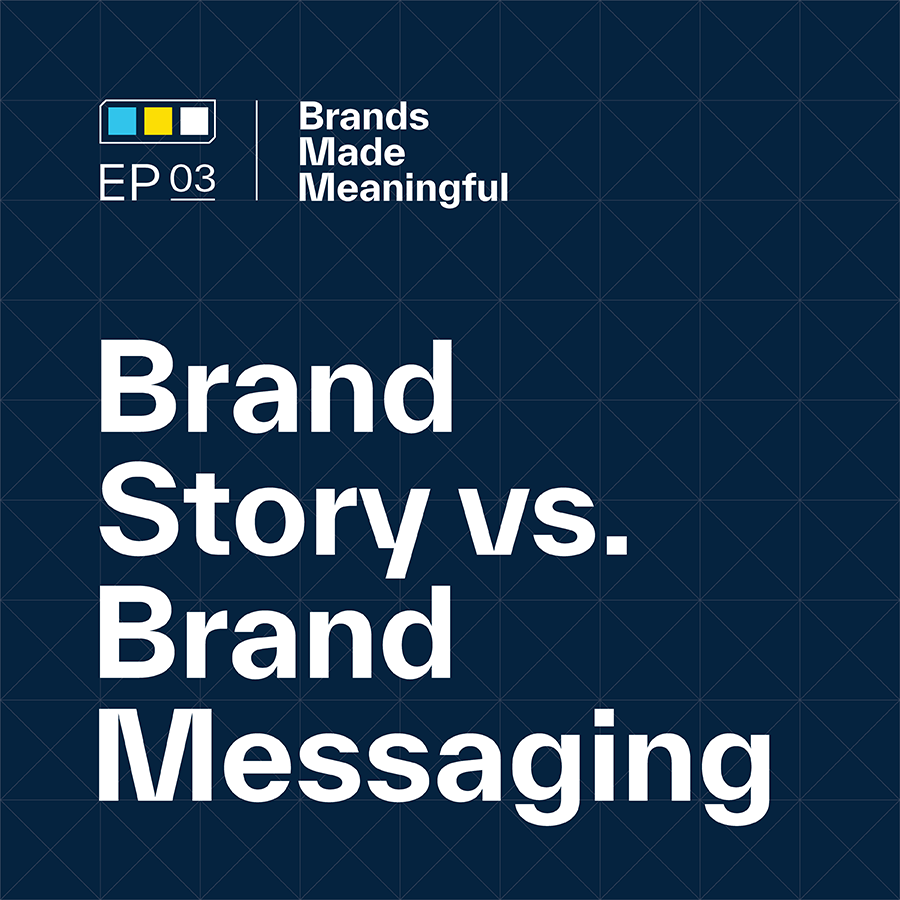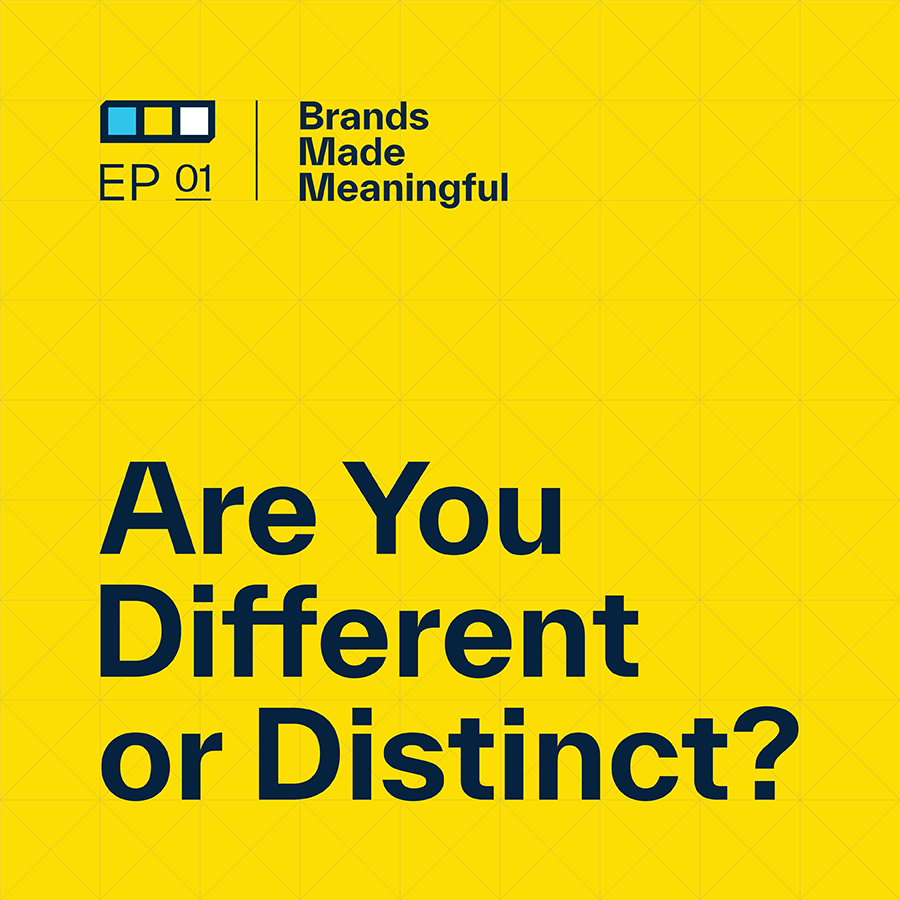EPISODE 50
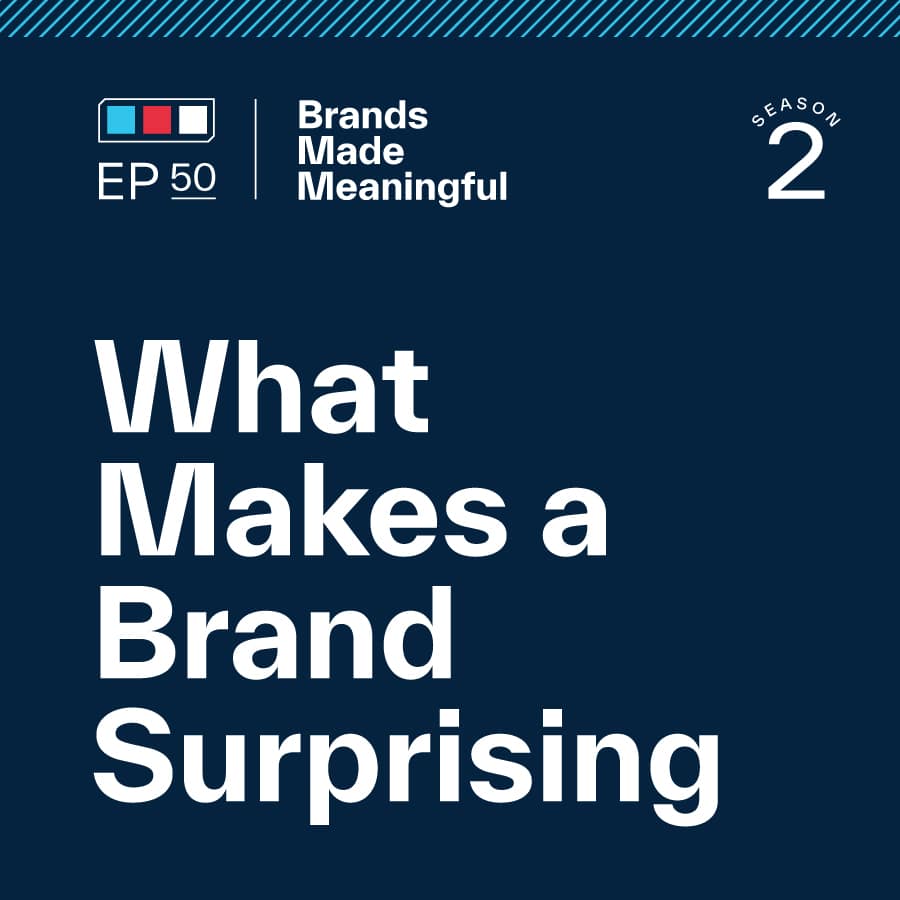
What Makes A Brand Surprising
Episode 50
Derek and Tucker break down the Sussner formula that we believe leads to a surprising brand.
EPISODE TRANSCRIPTION
We have a formula that describes how we look at what defines a successful brand.
Derek There are a lot of ways that we talk about a brand. A brand is your reputation. A brand is the experience of working with you. A brand is what people think of you. But we’ve actually broken that down to say, What does that mean? Let’s take that further down another level. And why don’t you cue in what is the three-part equation that we started leaning into?
Expand Full Transcript
Tucker It started just as our strategy equation for how we make a meaningful brand. And that became authenticity plus relevance plus surprise. And that really led to how we build a really, really great brand across all the things? Of course, it has to be relevant. That’s a great thing. And, of course, it has to be authentic to who you are. But the last thing, which is what we’re talking about today, is surprising. It has to be different. It has to really make people think and it has to really catch people off guard so that we can differentiate ourselves and do a lot of good things in the market. So that started just as a strategy component. And now it’s blended all the way through our process to go in every single phase, whether it’s visual, whether it’s verbal, whether it’s building signage for a client, or any of that stuff. It has to be all of those things. It has to be authentic to who we are. It has to be relevant to who’s going to be using it, who’s going to be seeing it, who’s going to be reading it. And it also has to be surprising, like it has to be different. It has to make your day. It has to be that delightful piece that allows you to go, Wow, I’m really glad that I ran into that. And when we move through this process – we’ve already had conversations around what authenticity is and we’ve already had conversations around what relevance is – we haven’t really talked about surprising, and that seems to be the one everyone’s really interested in. And how do we get there?
Derek We queued this up two or three conversations ago around visual differentiation. When we say surprising, visual is a part of it. But it’s more than just visual. And I think we kind of dug into that component of it. Today, we’re taking a step back and getting even broader. Why does this matter? What does this mean in what you say, how you say it, how you show up, and how you do it? It’s a great conversation. When we present authenticity, relevance, and surprise, especially to prospective customers in our initial conversations with them, surprise is the one that they cue in on first and say, What does that mean and how do you do it? So that’s inspired today’s conversation.
Tucker In short, surprise makes you sweat, which is basically the way we like to say it to our clients. And the reason why is because it’s going to make you push yourself outside of your comfort zone. And it’s designed to be like that. Most of the people that are working with us need change. They’re in the middle of change. They need someone to articulate that change in visual ways and verbal ways. And so when we come in and have this conversation with them, the thing I always try to prep them with is I’m probably going to come back with some ideas that might make you nervous. And that’s okay because the idea is that if we’re not making you nervous, then it’s expected. Then it’s right down the middle. Everyone sees it and it doesn’t really make you think anything different.
Derek A surprising brand in your space, in your industry, helps you stand out from the crowd of competition. It helps you be noticed. We’ve said the phrase recognized from across the room. It helps the way that you present yourself to be attractive to the people that you’re trying to talk to and makes it easier to engage with them.
Tucker It captivates people. It helps you differentiate like you’re talking about. It actually creates loyalty. When you think of some of the great brands that are doing really surprising things initially, they’re disrupters of their markets, and that disruption actually creates a community for them that people gravitate toward. Think of Apple, think of Tesla, think of these really great brands that have disrupted their industry and now they’re not really viewed as disruptors as much anymore because now they lead the industry. But initially, when they did that, it created this loyal community where they got to have people rally around this new changing idea of what we should be and how we should do it. So that’s kind of these really great pieces. So if we can captivate people, if we can differentiate ourselves, and if we can create a loyal fan base for ourselves, then we’ll have success. And that’s really the key part of why we do surprise in the first place.
Derek One of the most important reasons why those things matter – captivating, standing out, being memorable, creating brand loyalty – is because people have so many choices. Regardless of how well-positioned your organization is, you probably have competition.
Tucker It’s even more than just the competition that most people think of. Most people think of competition just as the direct competition that you’re dealing with. The way that we look at competition is probably more like wallet competitors, as in where else is the money going? If it’s not going to you, where are they putting it? If it’s not going to anything that you can offer and it’s maybe not even going to the same offering as yours, what is the substitute for that offering? So no matter what, I think there’s a lot of people that go, We don’t have competition because of this. But everyone has some kind of competitor, whether it’s indirect or direct.
Derek So if a brand isn’t surprising, isn’t disruptive in its own way, isn’t differentiated, what are some red flags, problems, or symptoms that would cue somebody in to say, We might be authentic, we might be relevant, but we’re missing that element of surprise. What are some red flags?
Tucker For me, it’s most likely customer engagement. That’s a great thing to follow – how engaged are your customers in what you’re doing? And sometimes they’re really, really engaged and sometimes they’re not. So I look at if it’s declining, that’s a problem in some kind of capacity. Like the audience no longer finds us exciting. They don’t find our products interesting. They don’t really find anything that we’re putting out there engaging to them. Or if our audience is just maintaining at the same level and we’re not seeing any kind of change at all, I would say that there’s probably an opportunity to be more surprising in the way that we look at that. So if you’re seeing that fading of relevance or that declining of engagement, I think that that can be a big part of it. Another one is looking at the lack of differentiation. So if there are a lot of options in the marketplace, and we’ve kind of beat this to death, the idea is if you are dealing with people in your market that offer the same thing as you and you’re being really critical about the way that you look, the way that you sound, the way that you show up in the marketplace and it doesn’t look distinctly different as in like you can squint your eyes and look really quick and make that decision within 3 to 5 seconds – if you can’t do that, then I feel like there is a lack of surprise there. And I think that’s hard for a lot of people because there are markets where you initially led that change and now people have followed you there. And it’s not enough just to change once because it’s a really fast industry. Most industries are really quick where it’s just like we can change now and we’re probably going to have to make some kind of meaningful change again in the next 3 to 5 years or else everyone else is going to follow suit or just feel the same.
Derek I think in that relevance piece, one of the components of surprise is emotion. It’s connecting what we do, who we do it for, how we do it, etc. to our customers on an emotional level. Marty Neumeier, who wrote The Brand Gap, wrote something along the lines that, I’m paraphrasing and adding surprise to his words, if you truly have a differentiated and surprising brand, your brand would be one such that if it went away, people wouldn’t know what to do.
Tucker Good point. I think when you look at the opportunity for a lot of people, if you’re not the only one, then it makes you really susceptible to being just another. So there’s that level of if you’re not different, then you are probably just the same. I look at surprise as are our customers, are our fans, willing to run through a wall for us? I know that’s like a total metaphor of the game and like a sports analogy when a coach hypes up their team and says, Okay, here we go. And people are like, I’m ready to run through a wall for them because I am so excited about what we’re doing and where we’re going. And if your audience just really isn’t excited about that, then you have an opportunity to say, How do we push them emotionally in one way or another? We are working with a golf course, trying to rebrand them, and saying, What does surprise look like for them? How do you get a golfer to go through a website and go, Oh my God, I want to play there so bad? I’m ready to go right now. And that’s kind of this pulling all these levers for us to say if we’re going to do this successfully, we want raving fans. We want people who are super excited about everything that you are doing. And if we do that successfully, then we’ve done our job.
Derek If your customers aren’t engaging, if people forget about you – I’m just kind of recapping this – if you’re easily confused with everybody else, people have a super short attention span. In any branding marketing sense, if you’re not top of mind, you’re out of mind. I remember years ago talking with a person who worked for Target Corporation in their buyer’s department, and she was responsible for hiring partners, vendors, agencies, etc. And I remember asking her, What’s the key to having the opportunity to work with you? And she pointed to a stack of portfolios and promotional materials that started on her floor and exceeded past the top of her desk. She goes, You need to stay in the top two inches of this pile or I don’t have the brain space to remember who you are. And if you haven’t done a great job of differentiating yourself, you’re literally in that pile with everybody else.
Tucker I think that’s super true. Think about emails. We talk to people who are doing email marketing and they say you have seconds to figure that out because if you don’t, if you’re not seen, you drop to the bottom of someone’s inbox and there’s no way you’re coming back from that. How can this be solved? How can we do that? How can someone who is listening now say, We could be different, we could surprise our audience, and we could build a brand that is delightful?
Derek First of all, you have to mentally be ready to embrace change. If you’re looking at your brand and something’s wrong, if you’re even considering that your brand needs to be more surprising, you’re already in that mind space. But you truly have to think about being open to new ways of messaging, of packaging, of the experiences that you provide.
Tucker The biggest thing I tell clients if we’re just consulting on something and not actually doing a project with them is they can’t be afraid to fail. They should be failing forward. The purpose of trying something new isn’t to always be right. Most of the time with strategy in what we’re doing, it’s an opinion – it’s not fact or fiction. It’s not fact. It’s fiction. And when we come in, it’s like, here’s what we think we could be doing, and here’s what we think we’ll do well, but we don’t know that. So when we come through this opportunity, it’s to say, let’s fail forward. Let’s make sure we’re taking chances, let’s make sure we’re making mistakes, but we make mistakes that are big and bold and that we’re making sure that we own up to them and that we have a plan for if they do go wrong.
Derek There’s also the step of reviewing and auditing everything that you have. What do you sound like? What are the words that you say and how does that compare to what your competitors say? And not only what you say, but I think a lot of the surprise comes with how you say it. You can take the same phrase and just emphasize different words.
Tucker Different tone.
Derek And it comes across differently. And oftentimes, that’s where you can lead into the surprise too.
Tucker So if you regularly audit yourself and your understanding that failing isn’t a bad thing and you’re embracing the idea that we need to be different than we are today, or else we cannot be better than we are today. I also think that this idea of open communication is huge. We talk about it in a lot of our episodes. The idea of understanding what you’re saying is really important. But what your customers are saying or what your audience and your employees are saying is also really important. To understand what each audience needs from you and what’s working and what’s not working is super big. But the last thing is fresh eyes, or we’ll call it fresh minds, make a huge difference. I just had a conversation with the CEO of an organization last week where he said, We’re going to take the idea of bringing in fresh minds and we’re going to put that to our sales organization. We’re going to have them rotate accounts because when they get on to a new account, they see things differently. They see opportunities in that account that the other salesperson who has been maybe working on it for a couple of years, doesn’t see. That’s exactly what needs to happen with brands normally, to say, You guys see it every day. You look at it and you’re so close to it every single day. It takes a new thought process. It takes a new set of eyes to see it differently and to say, Well, we could do it like this. This might help us shake things up a little bit. You’d be amazed how easy it is just to go, I would never have thought about it like that.
Derek There’s a sports equipment and gear manufacturing company that we work with, in a similar story, in that it’s a CEO. They brought in a brand new CEO to help this organization take the next step. This organization has been around for quite a while, but it has always been sales-minded, sales-driven – driven and led by the sales team to do anything and everything to support sales, sales, sales – which I totally understand. And he flipped that. He said, What if we took the mindset of looking at this organization as a marketing organization? What would we do differently? How would we sound differently in a market where, frankly, we’re stuck competing on price and service? How can we elevate what we do to the next level? Now, two and a half, three years later, they are a sales and marketing organization. It’s not one or the other, but the influx of thinking about something differently through that fresh set of eyes who wasn’t basically stuck or mired in the way that that you’ve always been doing it has led to incredible growth for this specific company.
Tucker And when you look at that assumption reversal rate – we’ve always done it like this. What if we didn’t do it like that at all? We did a whole episode on that a while ago and that conversation that we had, that’s how we do a lot of our work to say, Well, what if it’s not like this? Asking “what if” is really nice. And that’s the idea of failing forward, I think, is to say, What if we were to completely change ourselves? And that idea should make you a little nervous. And that’s okay. Because if you’re nervous, then that means it’s different. And if you’re nervous, that means you’re just not sure if it’s going to work. But if you know it’s going to work, that means it’s the safe choice.
Derek Safe sucks.
Tucker Safe sucks. And there’s this idea of being safe is ideal for a lot of people. And in this type of world, especially in the brand space, you can’t just be in the safe bucket because it’s so easy to be safe and follow other people’s direction and say, Okay, if we’re going to be this organization, we’ll just be the same way we are today, but just more modern. That’s not going to help. Being more modern does not change anything for you guys. You need to have a difference in mindset.
Derek One of our favorites, Marty Neumeier, said that disruption is the ultimate in differentiation. And when we say to be surprising is to differentiate, the ultimate goal is to actually push differentiation to a point of disruption. And he said, How do you know when you’re being disruptive? He said, When it scares the hell out of somebody.
Tucker We have clients who that happens to where we say, Here’s how we think we should move forward with your brand. And they’re like, No. There’s no way. We can’t do that.
Derek We’ve never done it that way.
Tucker We’ve never done it like that. We can’t do it like that. That’s ridiculous. And then it’s like, Okay, maybe we could do it like that. I don’t know. Sometimes it takes people about two weeks just to get over the idea that this isn’t the way they’ve always done it. I think there are a lot of people who come to us with challenges or opportunities and think, Well, maybe if I hire you guys, we could change just a little bit and get there. But that’s never how the relationship works. And I think that we are trying to be understanding with people when it comes to that and empathize with the change and we don’t come out right away and say, By the way, you’re probably going have to change a lot to get to where you want to go. And that’s just okay. But that’s the reality of the world that we live in.
Derek We talked about it in our last conversation. We’re not saying that to be surprising means to throw away all the great stuff that you have.
Tucker No. And if you haven’t heard the last episode, episode 49, about how we breathe life into tradition, that’s a great example of when we come in. We don’t say we’re just changing for the sake of changing, but you need to put a strategy together in order to understand what stays and what goes. And then it’ll be really clear on how we can breathe surprise into this brand that we have sitting here today.
Derek You can be surprising with style, with attitude, with how you say it, and with how you look. But just make sure you’re also being surprising with substance. We’re back to the authentic and relevant components of your brand. When we say it scares the hell out of somebody or makes them sweat a little bit or it makes them nervous, all that means is we’re challenging them to think differently, to think in a new way, to do an assumption reversal, and say, What would be the opposite of that? And even though the opposite is ridiculous and not practical, it can often break out of the mindset. That’s why I love the assumption reversal exercise. It takes you out of that same mindset and then can get you to a new place that maybe is mild or medium or spicy compared to where you were before. But at least it’s starting to get to the component of surprise that helps you stand out. Our minds are hardwired to recognize the different ones. I get these memes on Instagram all the time where it shows a row of pencils and it says, In 10 seconds, pick out the one that is a little bit different. And you’d be surprised how fast you can do it. It’s because it’s hardwired into our survival instinct. Which one is different? What should I be noticing? And when you notice the one that’s different, then the question becomes, Is that for me or not?
Tucker And it’s okay to not be for everybody. That’s where surprise gets kind of scary for some people, to say, We are not for everybody. So how can we be the most surprising for the smallest audience that will love us dearly? And if we can get to that point, then we’ll be successful.
Derek That’s a game-changer.
Tucker Then you’ll create that audience that you desperately need, that customer base that keeps coming back to you every single day. That’s what we’re trying to do – create a narrowed, excited, enthusiastic audience.
Derek The brand advocate audience, as I said before, where if you were to disappear from the market, they would literally go, I have no idea what to do now because that was the brand for this thing for me. Now I’m lost. That’s a huge hole to create. And if you can fill it with your brand, and you do it by being surprising, you can crush it.
Tucker Surprise is a game changer. You said it earlier. It’s powerful. Surprise is a huge thing. It’s also really hard for most marketing leaders to accept that we need to be more surprising. It’s not an easy thing to do, and it’s not an easy thing to get your team on board with all the time. But it’s super, super powerful in getting your brand to where it needs to go.
Derek Be un-ignorable.
Tucker Yeah. Till next time.
Derek Til’ next time. Sussner is a branding firm specializing in helping companies make a meaningful mark, guiding marketing leaders working to make their brand communicate better, stand out, and engage audiences to grow their business. For more, visit Sussner.com.
More Episodes Like This
Building Brand GuidelinesEpisode 65
Derek and Tucker show us how to build infrastructure guidelines to unify your brand experience across the board.
Club Identity SystemsEpisode 64
Derek and Tucker cover what Identity Systems entail and how to discern between internal and external methodologies.
Navigating Branding With a BoardEpisode 63
Derek and Tucker bring clarity to uniting your company under one cohesive vision.
Putting a Committee TogetherEpisode 62
Derek and Tucker assemble your need-to-know facts when putting together your committee.
The Guiding Principles of Private ClubsEpisode 61
Derek and Tucker go over the top ways private clubs can find the balance between pleasing old members while attracting new ones, all while making moves towards the future.
How Color Affects PerceptionEpisode 60
Derek and Tucker cover how to best convey your business with color.
Brand EcosystemsEpisode 59
Derek and Tucker break down how to craft effortless experiences when considering your brand as a whole.
6 Types of Brand TransformationEpisode 58
Derek and Tucker dive into 6 distinct types of transformations for a wide range of brands.
Tournament Branding For ClubsEpisode 57
Derek and Tucker discuss designing and delighting your club members with tailored events.
Brand Promoters & DetractorsEpisode 56
Derek and Tucker discuss how high level promoters increase your NPS and how to turn the tides on your detractors.
The Loudest Voices in the RoomEpisode 55
Derek and Tucker talk about gathering feedback while prioritizing every voice.
Determining A Primary AudienceEpisode 54
Derek and Tucker discuss if and when you should be honing in on your audience vs. casting as wide a net as possible.
Branding For ExclusivityEpisode 53
Derek and Tucker discuss the intricate process of naming your brand.
Measuring Brand SuccessEpisode 52
Derek and Tucker discuss how we measure our success in branding and a few key KPIs that help us understand our impact.
Branding For ExclusivityEpisode 51
Derek and Tucker breakdown how brands can create the perception that they are exclusive and only for a certain type of consumer.
What Makes A Brand SurprisingEpisode 50
Derek and Tucker break down the Sussner formula that we believe leads to a surprising brand.
Breathe Life Into Brand TraditionEpisode 49
Derek and Tucker discuss the intricacies and common pitfalls of branding for Private Golf Clubs.
They Key of Visual DifferentiationEpisode 48
Derek and Tucker break down the importance of differentiating your brand on a visual level.
Branding For Private GolfEpisode 47
Derek and Tucker discuss the intricacies and common pitfalls of branding for Private Golf Clubs.
Dealing With An Identity CrisisEpisode 46
Derek and Tucker breakdown how to identify and remedy a brand's identity crisis throughout thoughtful and intentional brand management.
Branding vs MarketingEpisode 45
Derek and Tucker discuss the differences between Branding and Marketing and how to make the two compliment each other.
Build Your Brand's FoundationEpisode 44
A brand's foundation is a critical element in being successful in the long-term.
Building a Constructive Branding ProcessEpisode 43
Derek and Tucker break down the steps required to build the most constructive and meaningful branding process.
What Makes a Brand Relevant?Episode 42
Relevance is a key piece of a brand's identity for creating clarity and connection.
Your Right to WinEpisode 41
Derek and Tucker discuss the “Right to Win” and the odds of your brand's success within your target market.
An Intro to Sub BrandingEpisode 40
Derek and Tucker discuss the nuances of developing sub-branding and strategies.
Conquer Branding FearsEpisode 39
Derek and Tucker dive into how to overcome the fear of change and the nature of constant refinement of your brand.
Balancing Strategy & DesignEpisode 38
Great strategy is a necessary foundation for great design—and great design brings great strategy to life.
Branding PrioritiesEpisode 37
Branding priorities are the actions and initiatives that shape or enhance a brand's identity, perception, and market position.
Invest in Your BrandEpisode 36
Investing in your brand benefits your company as a competitor in the marketplace, builds trust with customers, increases perception of quality, and drives employee engagement.
Why is Positioning Scary?Episode 35
Narrowing the brand's position is really a strategic decision to focus the brand's offerings, messaging and target audience on a specific niche or segment within the market.
What Are Brand Consultants?Episode 34
Derek and Tucker discuss the importance of hiring expertise with a wider breadth of knowledge than just visuals.
Hire for Brand FitEpisode 33
Hiring people that fit your brand is key in order to maintain brand authenticity, positive culture, and consistent messaging.
Your Brand’s Stance MattersEpisode 32
Your stance can help define your brand from a core level and make branding, hiring, and marketing not only easier, but more meaningful.
Levels of Executing a Brand RefreshEpisode 31
If you have a brand strategy in place, how do you execute it?
The Role of Features & BenefitsEpisode 30
Derek and Tucker discuss the importance of features and benefits within the context of branding, selling, and marketing your products and services.
Should You Listen To or Lead Your Customers?Episode 29
Within the challenge of any rebrand is the challenge of managing customers' perception of change.
Managing a Brand TransformationEpisode 28
Episode 28 discusses the highlights and challenges of rolling out a new brand, both internally and externally.
Living Your BrandEpisode 27
Your brand is not this shiny trophy on the shelf. It is something that you are molding every single day.
What Makes a Brand Authentic?Episode 26
Season 2 starts off with a discussion about building authentic brand experiences, both internally and externally.
Reviewing your Competition's CreativeEpisode 25
Derek and Tucker discuss the process of reviewing your competitors' creative strategy to better position your brand within the market.
Interviewing your Audience for InsightsEpisode 24
This episode details the process and benefits of interviewing your audience as part of the branding process.
Assumption ReversalEpisode 23
Derek and Tucker discuss how we change our thoughts and get into a different mindset to refine and revise our branding.
Developing vs. Amplifying a BrandEpisode 22
Another way to say it is, development is building and crafting your brand story, and amplification is then telling it.
Refreshing a Sporting Goods BrandEpisode 21
This episode shares the steps behind Sussner’s work in refining the Shock Doctor brand.
Defining PerceptionEpisode 20
Derek and Tucker discuss the positive and negative impacts of brand perception.
What is a Brand?Episode 19
Derek and Tucker discuss what defines a brand and what makes them successful.
Branding Golf Courses vs Golf ClubsEpisode 18
Derek and Tucker further hone in on golf course design.
Refreshing a Golf CourseEpisode 17
Derek and Tucker discuss the bar for golf course design – and how to push past it.
Let’s Talk Taglines Episode 16
Derek and Tucker talk taglines in today's episode.
Refreshing an Athletic DepartmentEpisode 15
Derek and Tucker sit down today to discuss what logos mean within branding.
Branding a Club Episode 14
Derek and Tucker discuss how to brainstorm branding a club.
An Intro to Internal Branding Episode 13
Derek and Tucker discuss the power behind internal branding.
The Value of Stereotyping Episode 12
Derek and Tucker sit down today to discuss the meaning of stereotyping within the branding world.
We’re on a Mission Episode 11
This episode digs into the rallying cry for the greatness your team is going to accomplish.
Aren’t Brands Just Logos? Episode 10
Derek and Tucker sit down today to discuss what logos mean within branding.
The Business You Are Really In Episode 09
Derek and Tucker sit down today to discuss how to discover what business you are really in to better understand your mission statement.
Clarity of Vision Episode 08
Derek and Tucker discuss the importance of looking ahead towards the big picture to better hone the purpose behind what we do in the now.
Branding B-2-B Environments Episode 07
Derek and Tucker discuss the Branding of Spaces.
It’s All in the Name Episode 06
Derek and Tucker discuss what a name can say - and not - about your company.
Delving Into Branding Data Episode 05
Derek and Tucker jump into the discovery phase of branding before it hits the drawing board.
Content Made Meaningful Episode 04
Today Derek and Tucker discuss the concepts within content and its common misconceptions such as the phrase "Content is King."
Brand Story vs. Brand Messaging Episode 03
Your story matters.
Visuals That Take The Cake Episode 02
Derek and Tucker sit down to discuss visual impact and what that could mean for your brand.
Are You Different or Distinct? Episode 01
It's not about being the only option, it's about being the right option. Join Derek and Tucker as they discuss Differentiation & Distinction.


